
46 Micro Saas Success Stories [2025]
A micro-SaaS business specializes in providing targeted software solutions to niche markets, differentiating itself from the traditional SaaS models that cater to wider audiences.
This strategy enables micro-SaaS entrepreneurs to gain in-depth knowledge of their customers' specific needs, allowing for the delivery of highly customized solutions to unique problems.
This approach not only ensures precision but also fosters a closer relationship with their customer base, making it an effective and smart choice for entrepreneurs looking to address particular market segments.
To launch a thriving micro SaaS company first pinpoint a distinctive problem that needs solving. Next, select a platform that can grow with your business and support its expansion.
Remember that prioritizing customer feedback will be key to refining your product and ensuring its long-term success.
In this list, you'll find real-world micro saas success stories and very profitable examples of starting a micro saas that makes money.
1. Flodesk ($25M/year)
Martha Bitar, Rebecca Shostak, and Trong Dong envisioned Flodesk out of a mutual frustration with existing email marketing tools that were either too complex or didn't support beautiful designs. Martha noticed small business owners struggled with current platforms while working at HoneyBook, and Rebecca's template business faced continuous issues as customers found it difficult to implement aesthetic email designs on platforms like MailChimp. Realizing they were addressing an underappreciated gap, they conducted numerous customer interviews to validate this pain point.
During development, they closely engaged with their target audience of creatives and small business owners, refining their product based on direct feedback. This approach allowed them to ensure they were genuinely solving the right problems and building a user-friendly platform. A challenge they faced was balancing development with their full-time jobs and bootstrapped resources, but their early focus on customer interviews and prototype testing helped them persist. Their key lesson was the importance of deeply understanding their audience's needs before writing any code, ensuring a product-market fit from the start.
How much money it makes: $25M/year
How many people on the team: 49

Flodesk, co-founded by Martha Bitar, skyrocketed to over $25 million in annual recurring revenue by solving small businesses' email marketing woes through flat-rate pricing, user-friendly templates, and an effective referral program, reaching 5,000 paying customers within months.




2. Gumroad ($21.2M/year)
Sahil loves building stuff. He really enjoyed the process of taking a problem coming up with a solution, and then shipping a prototype of that solution to see how good his concept was. Before finishing college he had already shipped a dozen products. Most of the time, they weren't that great.
But sometimes something works out really well, and then he has to decide if he actually wants to work on the idea some more. Very rarely, the answer is yes. That was the case with Gumroad. The question at its core was really compelling to him: How easy could one make it to sell something?
How much money it makes: $21.2M/year
How much did it cost to start: $0
How many people on the team: 17
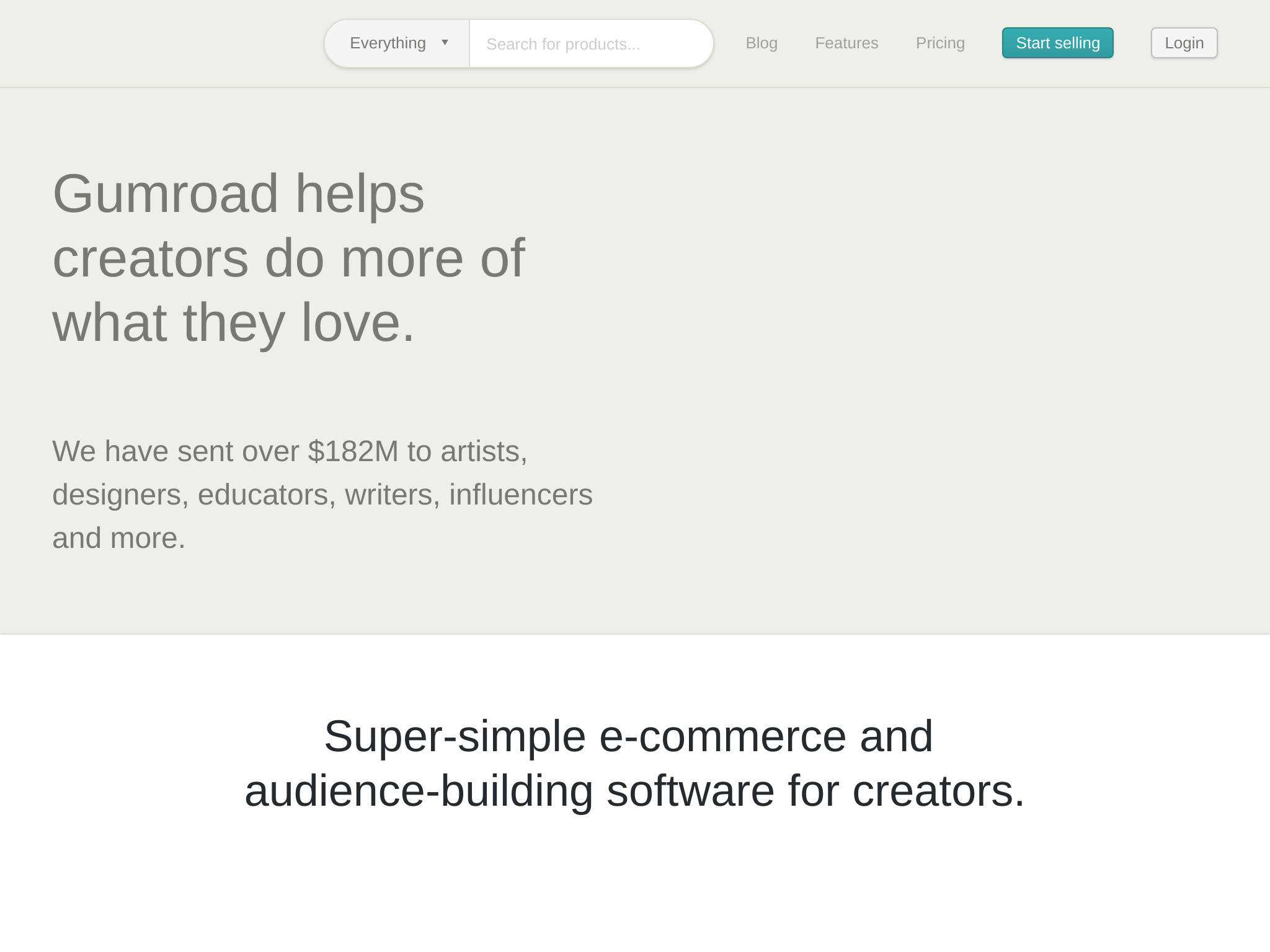

Learn how Sahil Lavingia grew Gumroad from a weekend project into an e-commerce powerhouse generating $21.2 million annually, using nothing more than elbow grease and cold emails to drive their early growth.




3. Tilled ($10M/year)
Caleb Avery, the founder of Tilled, spent nearly a decade in the payments industry and constantly faced frustrations from his clients about the unsatisfactory onboarding process and the struggle to monetize payments. He observed that while many businesses streamlined their core product implementations, the payment processes remained cumbersome, requiring lengthy paperwork and waiting periods. This often resulted in a poor customer experience and drop-offs.
Recognizing that the solutions on the market didn't meet the dual needs of quick onboarding and revenue maximization, Caleb began researching what it would take to create a better solution. He consulted with large software companies and delved into existing PayFac-in-a-Box providers, learning that while these options existed, they required significant time and financial investment, making them unrealistic for most companies.
Caleb validated his idea by examining the challenges his consulting clients faced and envisioning a platform that offered a seamless, instant onboarding experience combined with strong economic benefits. Despite encountering skepticism and realizing the tough path ahead, Caleb refined his approach based on feedback and his deep industry insights. The primary lesson he learned was the necessity of marrying technology with user-centric design and transparent, fair economics, which led to the creation of Tilled’s PayFac-as-a-Service platform.
How much money it makes: $10M/year
How many people on the team: 40
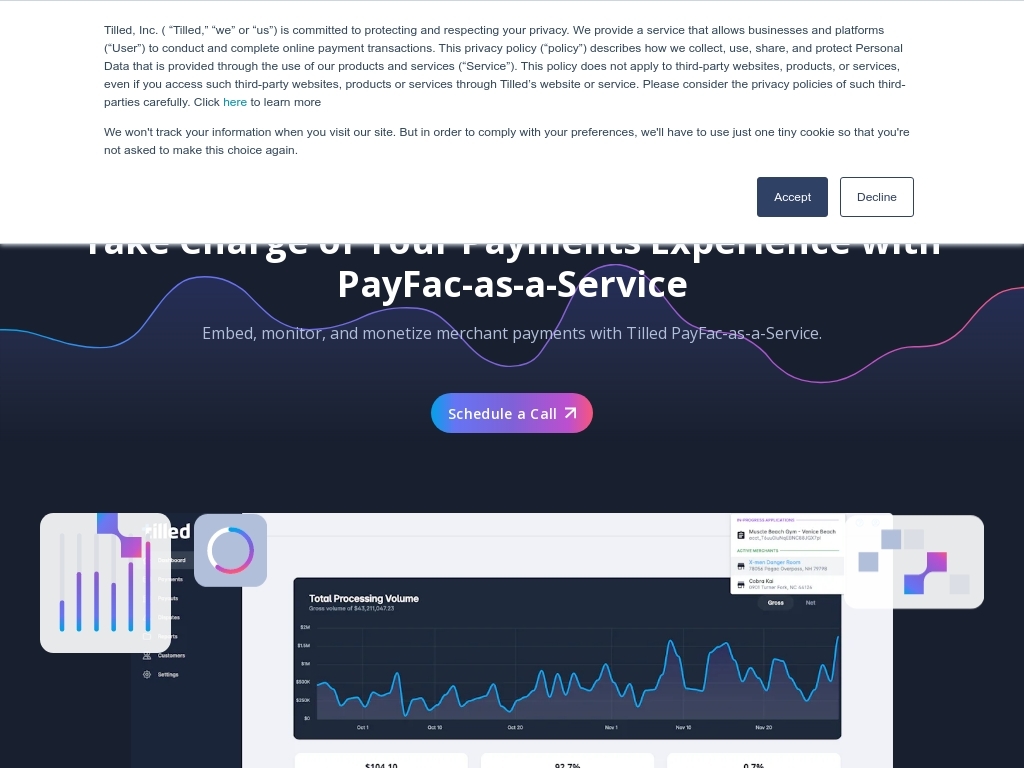

Tilled, founded by Caleb Avery, revolutionized payment processing for software companies with a seamless onboarding platform, cutting integration time from six months to nine days, and pushed annual revenues to $10 million by effectively leveraging LinkedIn and strategic channel partnerships.




4. Beehiiv ($7M/year)
Tyler Denk founded Beehiiv based on his deep involvement with the success of Morning Brew, where he built major growth and tech features crucial to its rise. When Morning Brew's readers frequently inquired about the tools and systems behind its excellent referral program and well-constructed newsletters, Tyler realized there was a significant gap in the market for an intuitive, all-in-one newsletter platform. During his tenure at Google, Tyler and his co-founders moonlighted on building Beehiiv, constantly seeking feedback from potential users to fine-tune their MVP.
They validated their idea through exhaustive conversations with prospective users, confirming the need for a user-friendly platform specifically designed for newsletter creators. The initial focus was on building core essentials like a text editor and basic website functionality, knowing they could grow the feature set rapidly once users were on board. Tyler's journey reflects the importance of user-centric design and adaptability, wherein they remained responsive to customer feedback and industry needs, ensuring their product evolved in line with real-world demands. This hands-on and adaptive approach enabled Beehiiv to stand out even in a crowded market.
How much money it makes: $7M/year
How many people on the team: 50

This case study reveals how Tyler Denk's Beehiiv transformed the newsletter industry by addressing key pain points and growing impressively to an average revenue of $583K/month, backed by $16.7 million in funding and leveraging a combination of customer-centric design, strategic investments, and highly effective referral programs.




5. GMass, Inc. ($5.4M/year)
During his previous business venture, Wordzen, the founder recognized the necessity of sending personalized emails to small groups. After researching available options, he was not satisfied with the solutions offered. Therefore, he developed GMass as an internal tool to aid in managing his business. Although Wordzen failed to gain much traction, GMass proved to be successful and was featured on Product Hunt, giving him the validation that he needed to make the decision to pursue this as a business.
How much money it makes: $5.4M/year
How many people on the team: 1
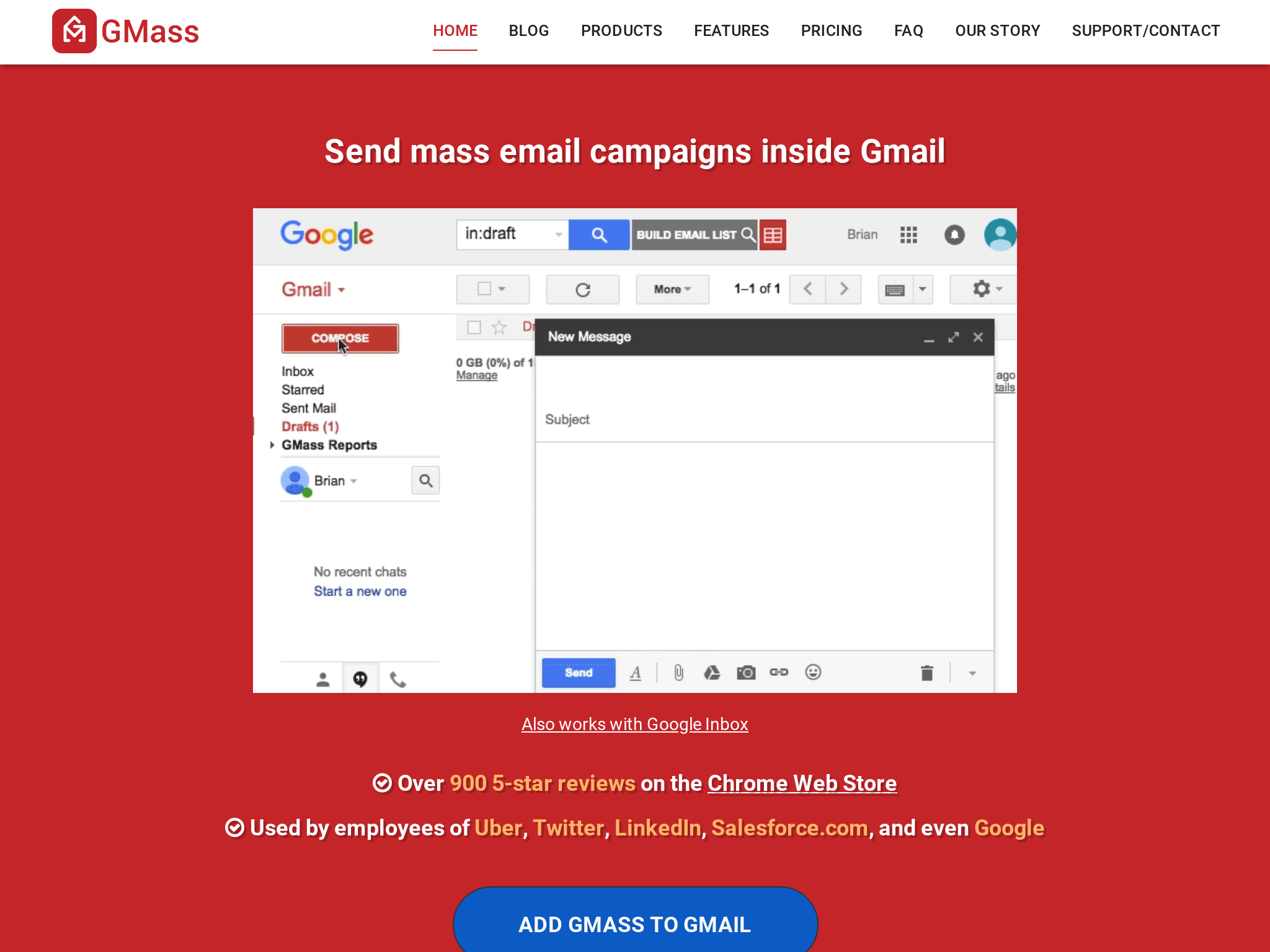

GMass, an email marketing platform that allows users to send cold emails and email marketing campaigns with Gmail, has attracted over 500,000 user signups, including major tech companies like Uber, LinkedIn, and Google, and now generates over $200K in monthly recurring revenue through a successful content marketing strategy and focused ad spend.




6. Filestage ($3M/year)
Hey, my name is Niklas Dorn and I'm the CEO and co-founder of Filestage. We started the company in 2015 after realizing how messy and complicated the feedback process was for agencies and marketing teams when it comes to content creation. Our software makes it easy for teams to share, comment, and approve any digital content, and today we have over 600 customers and 50,000 users worldwide.
How much money it makes: $3M/year
How much did it cost to start: $200K
How many people on the team: 50
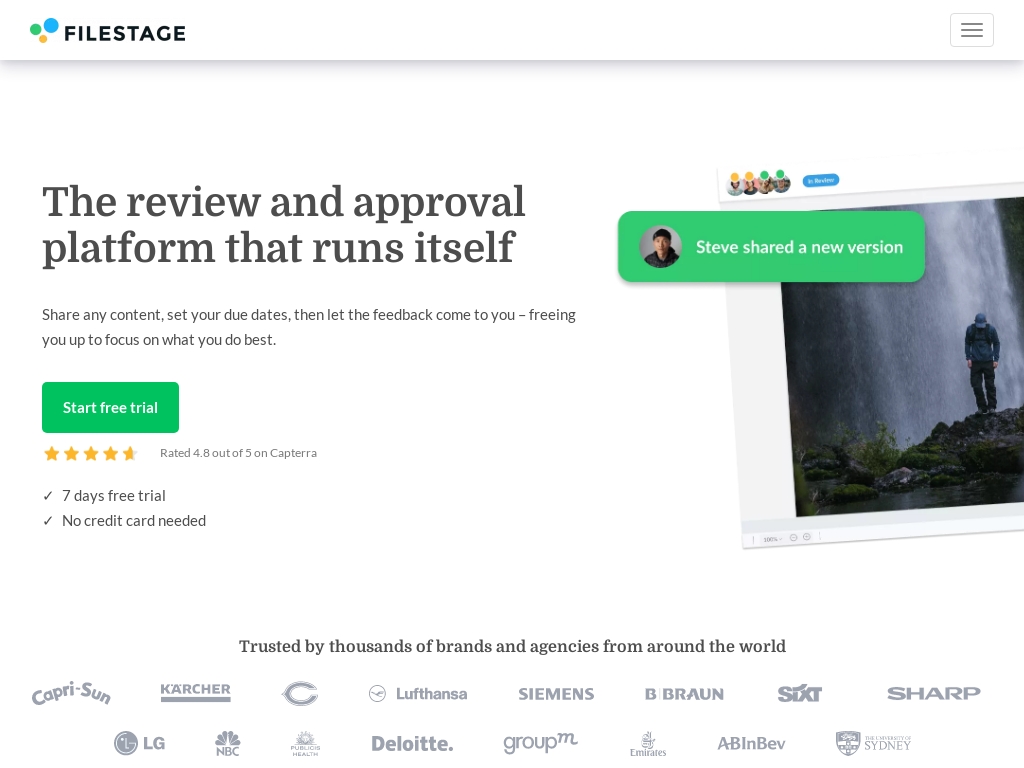

Filestage is a content review and approval software that started in 2015 and now has over 600 customers and 50,000 users worldwide, offering an efficient approval process for digital content such as videos, images, pdf, podcasts, and entire websites.




7. Tweet Hunter ($2.64M/year)
These two founders worked on launching a product every month. And every time, the tech co-founder brought in a few early sales because he had a small but high-quality audience on Twitter. The marketing founder tried too, but failed.
At the time, they had built up a database containing thousands of tweets that they were using for another product. So he thought he could maybe use the best-performing content as inspiration for his own tweets.
The tech co-founder made a very quick prototype, and… it worked! Writing became better and quicker, and he achieved a higher engagement.
That was the first version of Tweet Hunter: a searchable library of high-performing tweets.
How much money it makes: $2.64M/year
How much did it cost to start: $0
How many people on the team: 0
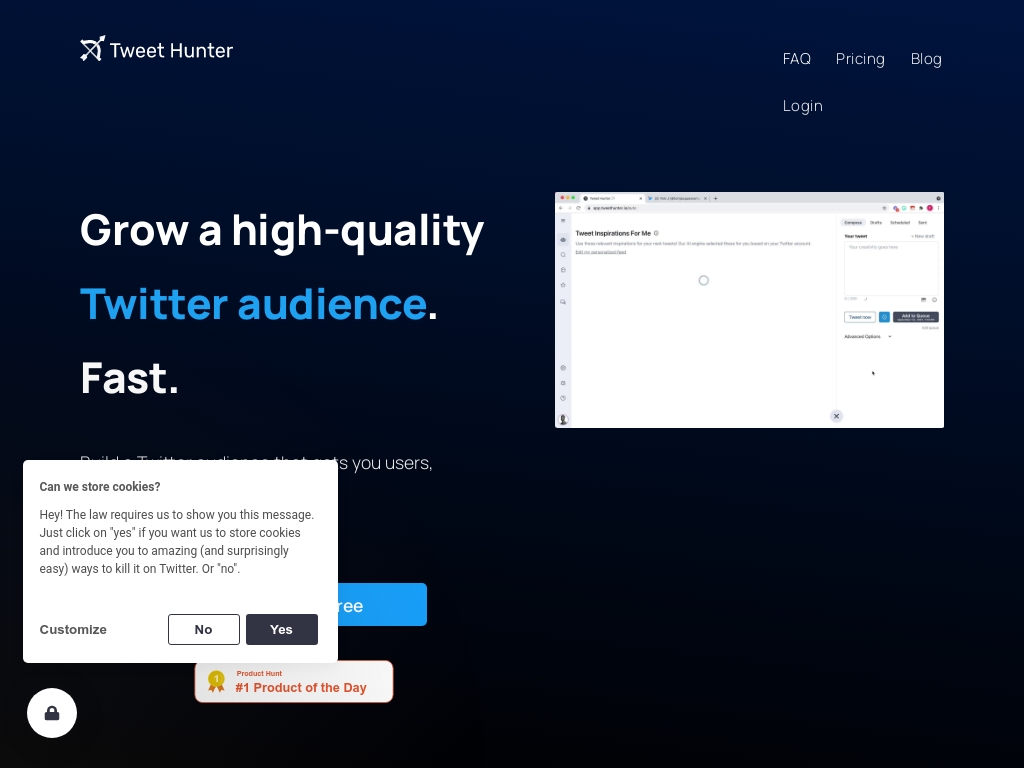

French co-founder of all-in-one Twitter tool, Tweet Hunter, discusses how his personal marketing experience and passion for solving his own problems led to their successful launch and current $60,000 MRR in under 10 months.




8. Prerender.io ($2.64M/year)
Todd Hooper, a software engineer, came up with the idea for Prerender.io after experiencing the problem of JavaScript websites not showing up on Google. Worked on this on the side until the monthly profit was close enough to quit his day job and have Prerender.io become a full-time thing.
Came up with the idea when he kept running into the problem where the projects he was building were not showing up on Google.
How much money it makes: $2.64M/year
How much did it cost to start: $0
How many people on the team: 4
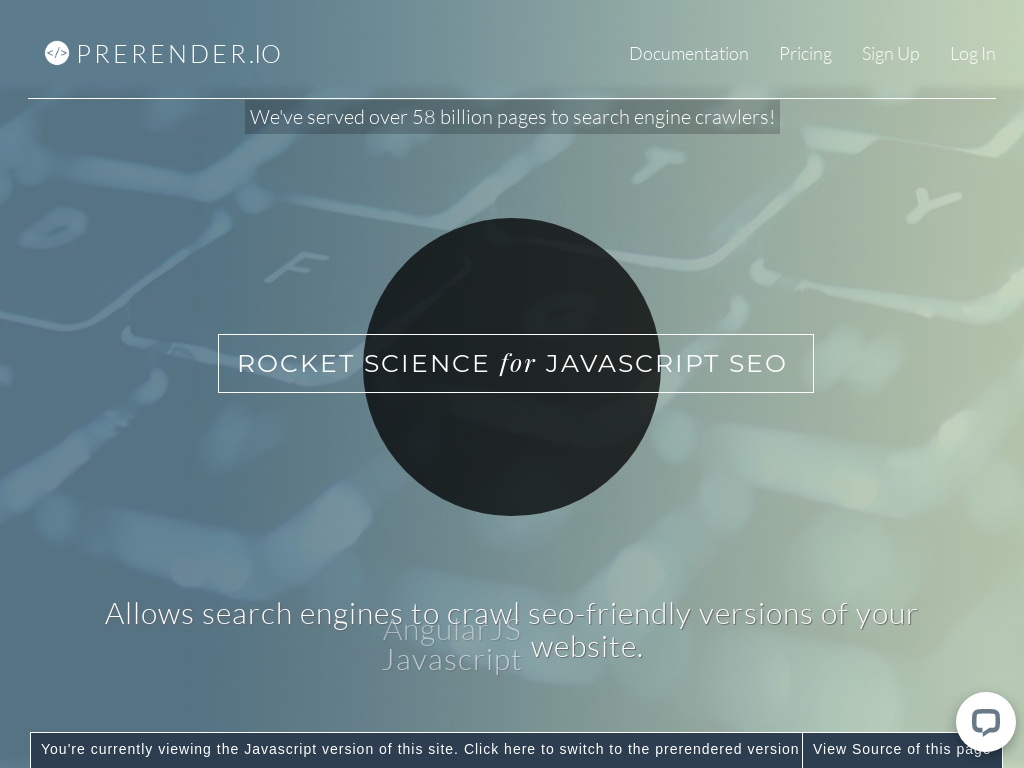

Solo founder Todd Hooper bootstrapped Prerender.io from zero to $2.5 million in ARR over 5 years by releasing an open-source project on Github and turning it into an SEO-friendly version of React, Angular, and Javascript websites, and then offering it as a SaaS service for businesses.




9. Carrd ($1.2M/year)
Carrd is a sleek, intuitive one-page website builder designed with simplicity and speed in mind. It caters to a variety of needs, from personal profiles to landing pages, all while offering a seamless user experience. Unlike other site builders that aim for complexity, Carrd focuses on the essentials, allowing users to create beautiful sites within minutes, with no prior signup required.
AJ got the idea for Carrd out of a desire to branch out from his routine work of designing and coding website templates. This routine work had become too easy and almost monotonous, prompting him to seek a new challenge that would leverage his extensive skills in a fresh way.
He realized that while he was looking for something different to do, he still wanted to stay close to his core expertise in web design and development. He wanted to build for a simple idea that could serve a broad audience.
This drive to innovate within his domain, coupled with his recognition of users' desires for simplicity and efficiency in web building tools, spurred him to develop Carrd.
How much money it makes: $1.2M/year
How much did it cost to start: $500
How many people on the team: 10

Carrd, a simple one-page website builder, has amassed over 800,000 users, 1.2 million sites created, and $1.5M/year revenue, with the founder AJ leveraging his web design skills and the power of Product Hunt and Twitter for massive growth.




10. Plausible Analytics ($1.2M/year)
Both founders had similar experiences with Google and its products. They went from big fans, using several of their tools for many hours every day, loving them and recommending them to my family and friends, to becoming more aware of Google’s size, its business model, and how their dominance negatively impacts the web.
How much money it makes: $1.2M/year
How many people on the team: 0
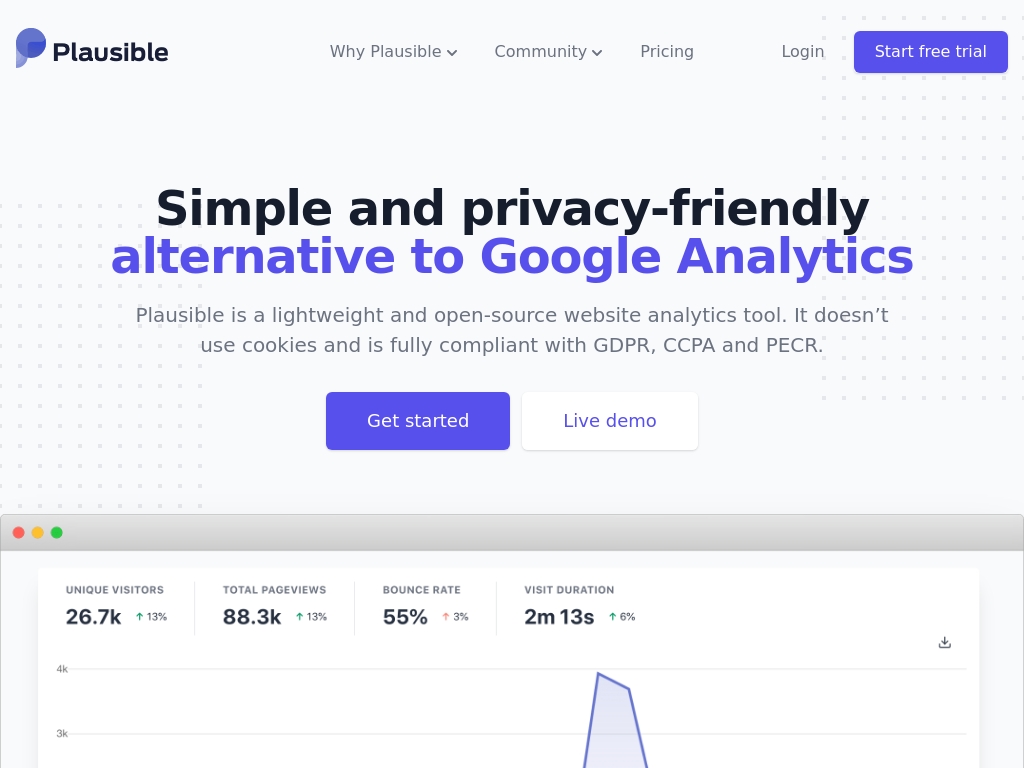

Plausible Analytics, a privacy-friendly web analytics tool, reached $4,557 MRR and 743 paying subscribers by focusing on content marketing and engaging relevant communities, rather than paid advertising, while positioning itself as a lightweight, cookie-free and affordable alternative to Google Analytics.




11. AiFA Labs ($1.04M/year)
While executing an SAP implementation, Harish Mandadi saw firsthand the inefficiencies of traditional software development. This realization propelled him to invest his savings and two decades of IT experience to launch AiFA Labs in 2021, now boasting a global team of 250+ professionals.
How much money it makes: $1.04M/year
How many people on the team: 158


Discover how AiFA Labs evolved into a global IT solutions powerhouse with a team of over 250 professionals and flagship AI platform "Cerebro" that has revolutionized software development across multiple industries, all started with a modest $500,000 self-funded investment.




12. Buttondown ($900K/year)
Justin built Buttondown to scratch his own itch — all of the other email tools he tried were either super-heavy (like Mailchimp or ConvertKit) or wanted to own his entire blogging presence like Medium or Substack. There wasn’t anything that just let him drop in a <form> tag into a blog and automatically send out emails, so he decided to build something just like that on a hunch that other people shared his use case.
How much money it makes: $900K/year
How much did it cost to start: $100
How many people on the team: 1
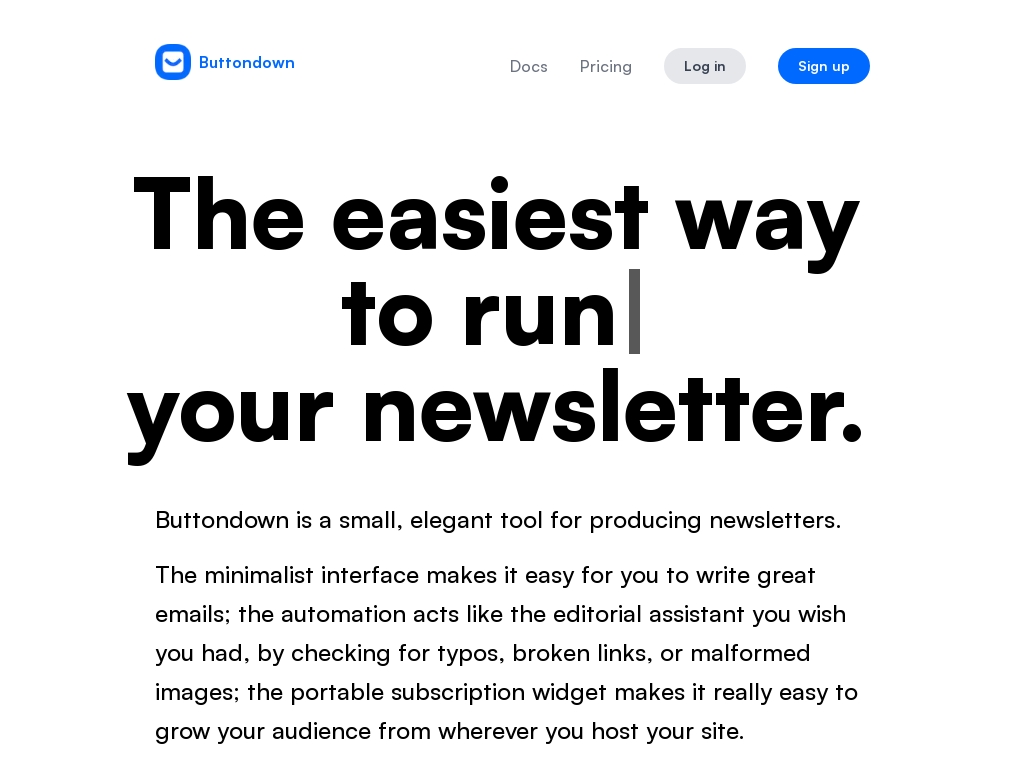

Buttondown, a newsletter software built by an engineer disillusioned with the complicated and feature-laden email tools available, became a profitable and growing business powering over tens of thousands of customers and adding over $1,000 monthly, all made possible by keeping it simple, surgical, and functional.




13. CASTANET ($732K/year)
Started reaching out to people he knew who either owned a business or had higher-up positions in a business in order to brainstorm business ideas. A consistent theme that came up was lead generation. There's always a big demand for good leads and salespeople are willing to pay.
How much money it makes: $732K/year
How much did it cost to start: $100
How many people on the team: 0
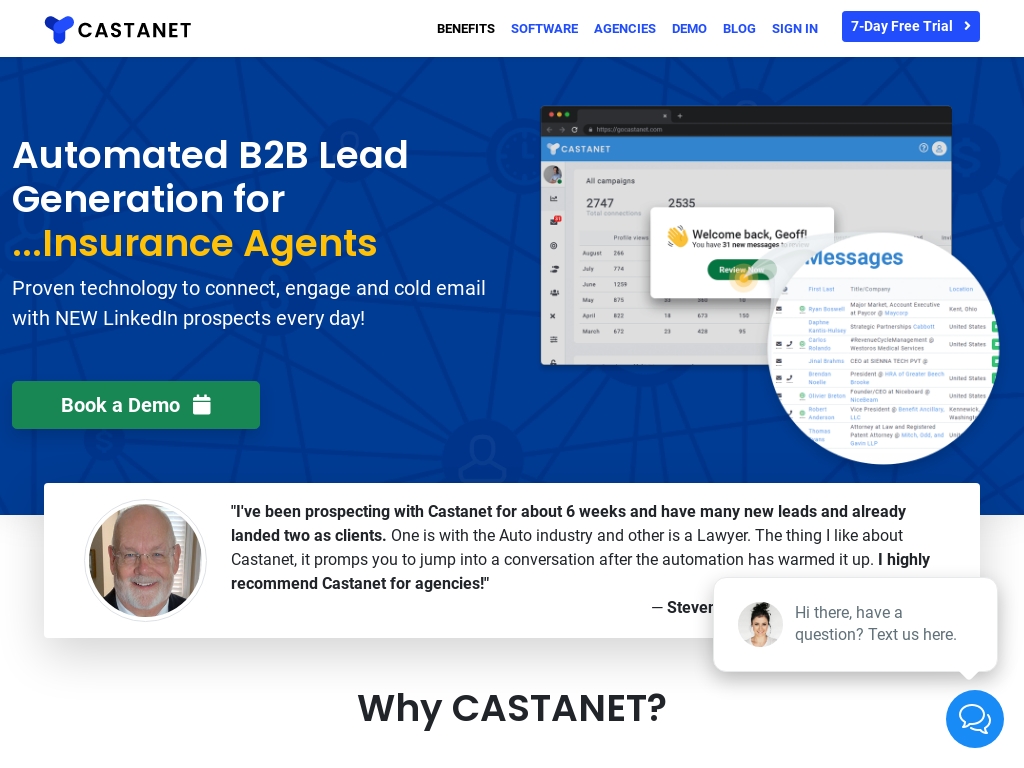

Discover how an aspiring founder turned countless failed projects into a $61,000/month LinkedIn outreach tool by leveraging strategic networking, relentless customer engagement, and a savvy reseller model to scale rapidly without hiring a single employee.




14. Widebundle ($660K/year)
He used Shopify Facebook Groups and communities to read people’s problems and questions, add comments, and start conversations. It’s a long job that only a few people want to do, but it works.
At some point, Matt found 3 people who wanted the same thing but it didn’t exist in the Shopify App Store. They wanted features from a bundled app that didn’t exist. And if 3 people want it, maybe there are more.
How much money it makes: $660K/year
How much did it cost to start: $300
How many people on the team: 6
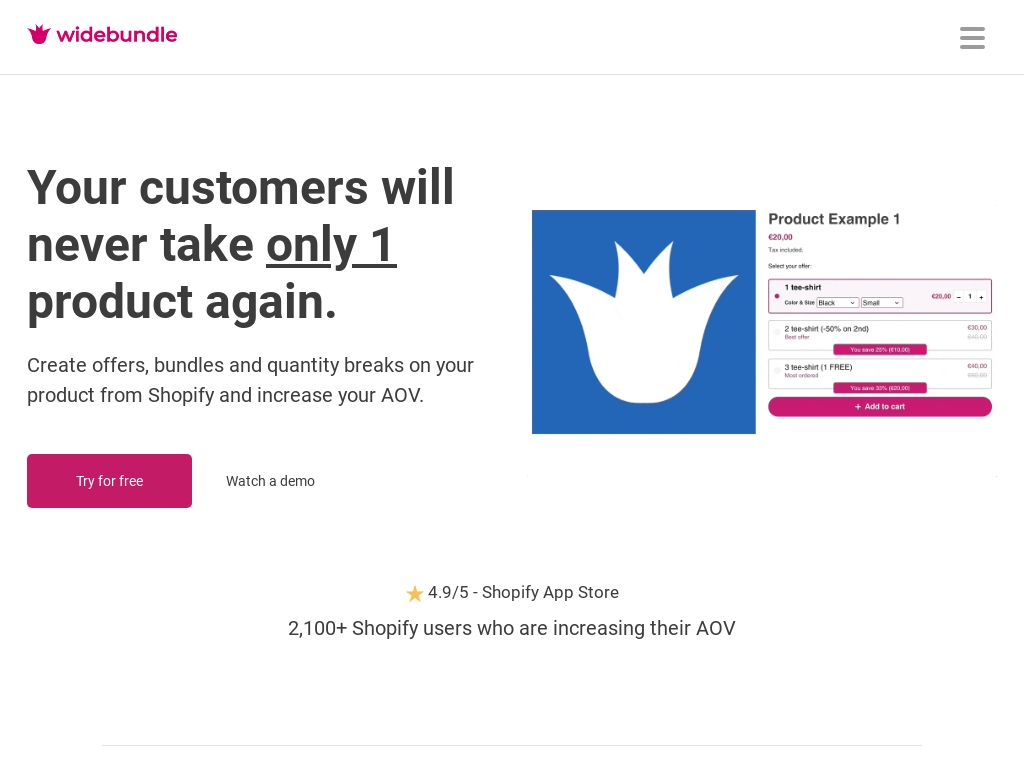

WideBundle is a Shopify App founded in May 2020, that has grown to making over $40,000 monthly, with 5 people working full-time, and helps Shopify merchants create bundles and offers to increase their average order value.




15. Gorilla ROI ($276K/year)
Jae and his wife started an Amazon business, but they soon faced the challenge of losing money due to their reactive approach towards issues. They found themselves running out of stock because of poor inventory forecasting decisions, incorrect product mixes, and overpaying fees. Additionally, a lot of their data analytics was manual, resulting in a waste of 1-2 hours just to collect data.
To tackle this problem, they created Gorilla ROI, which automates data collection into Google Sheets. Their mission was to simplify the process of getting disorganized data into spreadsheets in a clean and organized way.
How much money it makes: $276K/year
How many people on the team: 2
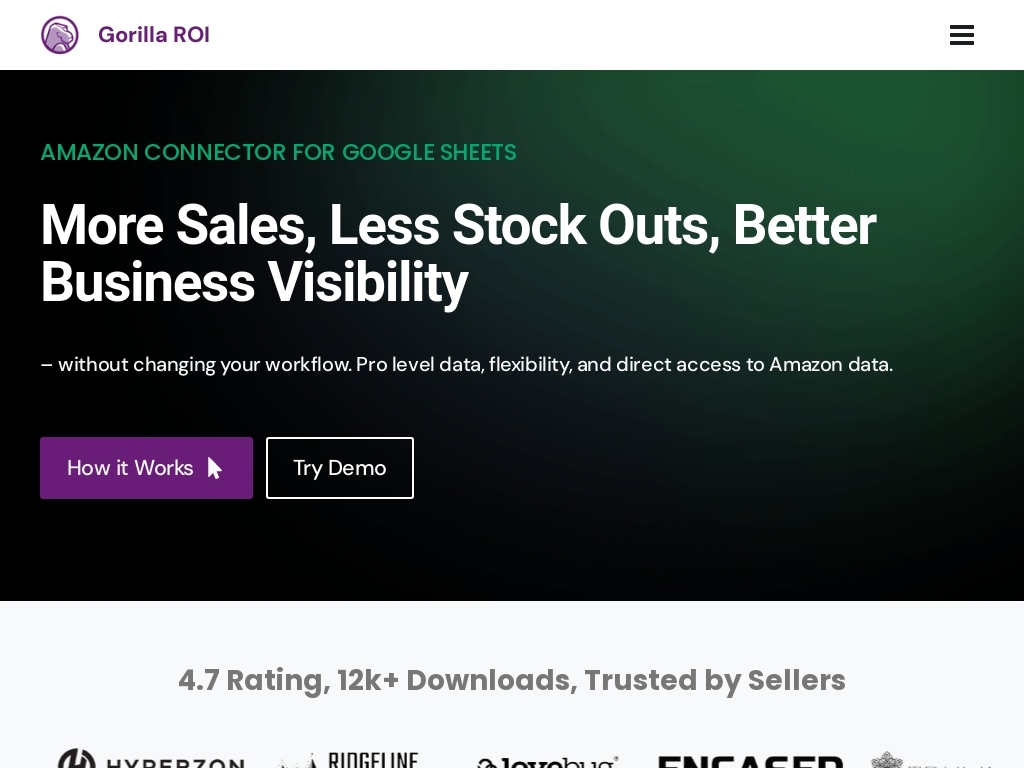

Gorilla ROI is a Google Sheets add-on that connects Amazon Seller Central to Google Sheets, now bringing in $12,000/month through organic inbound marketing, and focusing on scalability before any heavy push towards outbound marketing.




16. Kiwi Sizing ($432K/year)
The founder of Kiwi Sizing used to run a dropshipping store that sold dog clothing and pet accessories, but he always struggled with setting up size charts for the pet products.
He faced two main issues when it came to sizing: each product had different sizing, and the vendor only provided sizing in centimeters.
As a result, he had to manually convert each number from centimeters to inches using Google search, which was a time-consuming process. At the time, there were two size chart apps available on the Shopify app store, but neither of them offered unit conversion features.
This meant that he had to waste hours adding up to 20-30 new merchandise each week. The business started because the founder, being an engineer, was highly motivated to create a tool that could help him automate this tedious process.
How much money it makes: $432K/year
How much did it cost to start: $300
How many people on the team: 1
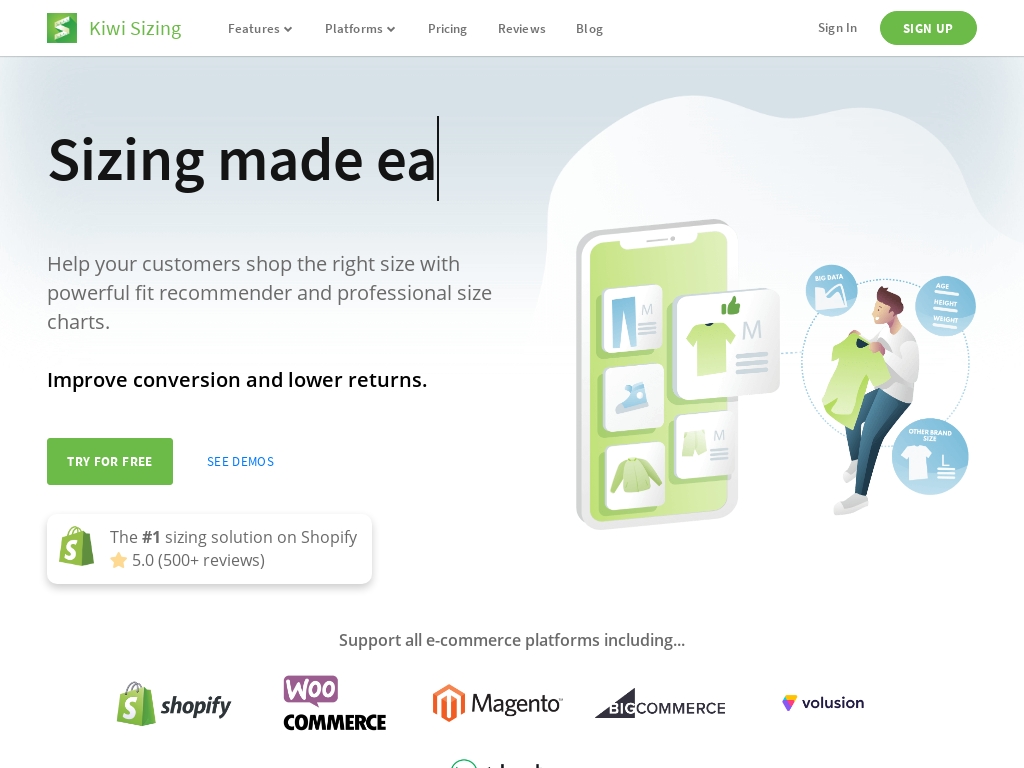

Kiwi Sizing is an e-commerce plugin that simplifies size charts and offers fit recommenders, generating over $36k/month in revenue with a 5% month-over-month growth, and serving over 13,000 active stores worldwide.




17. Mailman ($360K/year)
This founder has built 25+ side projects. Most of them failed but a few brought in some revenue. After failing small and big over two dozen times, he had one product that investors wanted to invest money in, and after five years of growing it, sold it, and took some time off from making stuff. He started advising and investing in startups, especially crypto startups.
To find time from all the chaos happening in his inbox, he wrote a small script that would make sure that emails landed in his inbox only every four hours, in batches. Nothing comes in between. He used this script to find time to find good ideas that he could be building next.
That’s when he saw a tweet from Andrew Wilkinson (Dribble owner), and he immediately emailed him with the script and a video tutorial. His reply was, “What if we make this into a business?”
How much money it makes: $360K/year
How much did it cost to start: $30K
How many people on the team: 5
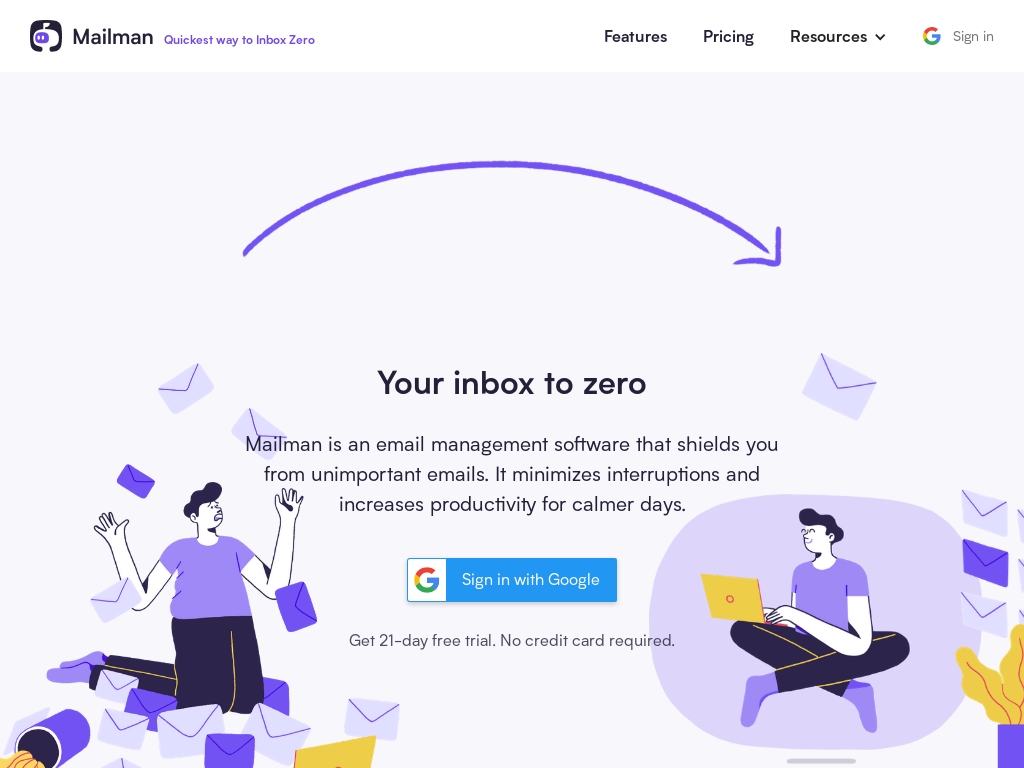

Mailman, a tool that allows users to control when and what emails should land in their inbox, is a year-old company bringing in approximately $30k in MRR, while its upcoming features will improve users’ newsletter-reading experience and automate redundant tasks.




18. SuperLemon ($348K/year)
After 2 failed startups, the founders set their sights on working on something people want and are ready to pay for. Their priority even before they had decided on the idea for the product was to find an audience, a group of people who faced a problem, and who currently pay for a software tool to solve their problem. App marketplaces were a way to mitigate some of this risk.
They had some prior experience with building a Shopify store, and also had a friend who built a $20k/mo Shopify app without any employees.
To find problems worth solving, they browsed the entire Shopify app store, which at the time had 3,000+ apps. Going through every single app, jotting down interesting ones, especially ones that had poor reviews indicating that they could do a better job at solving the same problem, and picked 5 out of the 100s of those ideas they identified, based on their goals and constraints:
- An existing problem that people were already paying for
- Existing apps weren’t doing the best possible job at solving customer’s needs
- The app had the potential to grow to at least $3k in MRR, which after costs would allow the founders to live comfortably in Bengaluru
How much money it makes: $348K/year
How much did it cost to start: $0
How many people on the team: 0
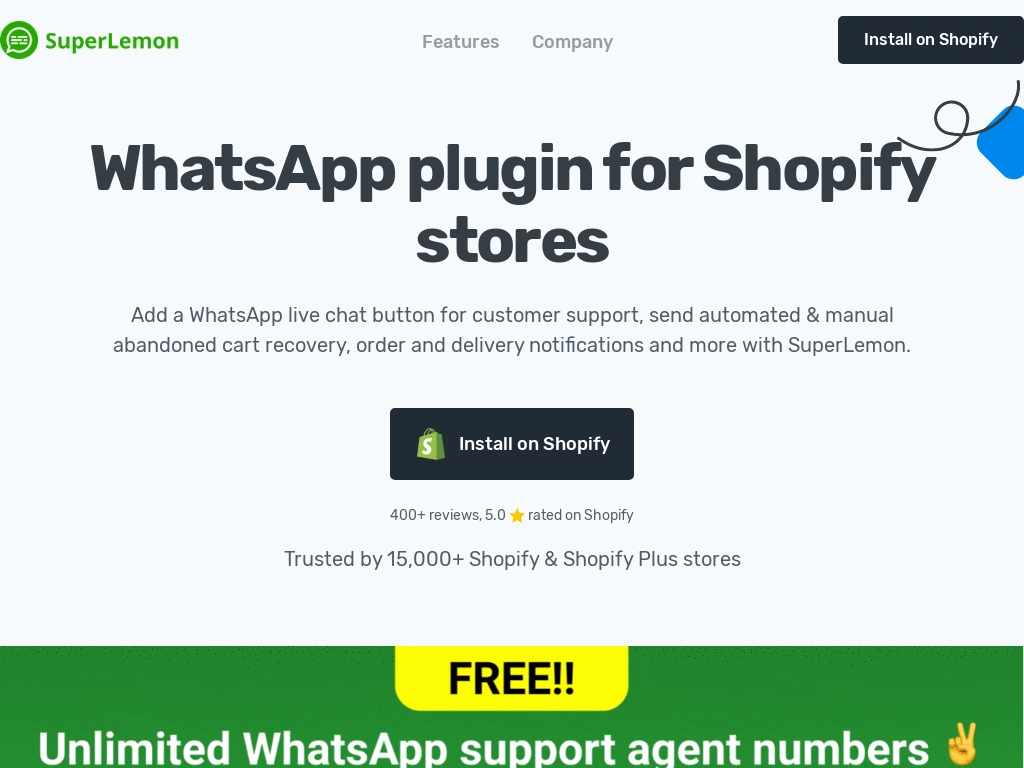

SuperLemon, a WhatsApp plugin for Shopify eCommerce stores, crossed $29,000 in MRR as of July 2020, with 20,000 users from 50+ countries and 1700+ paying customers, all acquired through organic marketing strategies and a relentless focus on customer service and satisfaction.




19. Instatus ($288K/year)
Came up with the idea because people were already paying for similar types of products. It seemed like a zero-risk idea because the MVP was easy to build.
How much money it makes: $288K/year
How much did it cost to start: $2K
How many people on the team: 5

Egyptian software developer Ali Salah shares how he quit his 9-5 job and created Instatus, a service for creating status pages that has grown from $200-300/mo to $2K MRR, attracting around 111 paying medium-to-large-sized clients through branding, pricing, and customer support strategies, as well as using Google Ads, while also providing tips on launching a product and building a business.




20. ConvertCalculator ($288K/year)
Came up with the idea when a client asked him to build a price quote app. He searched Quora and Reddit for potential demand and found there were lots of people looking for a similar app. Decided to build it in a week and landed his first paying customers 2 weeks later.
How much money it makes: $288K/year
How many people on the team: 0
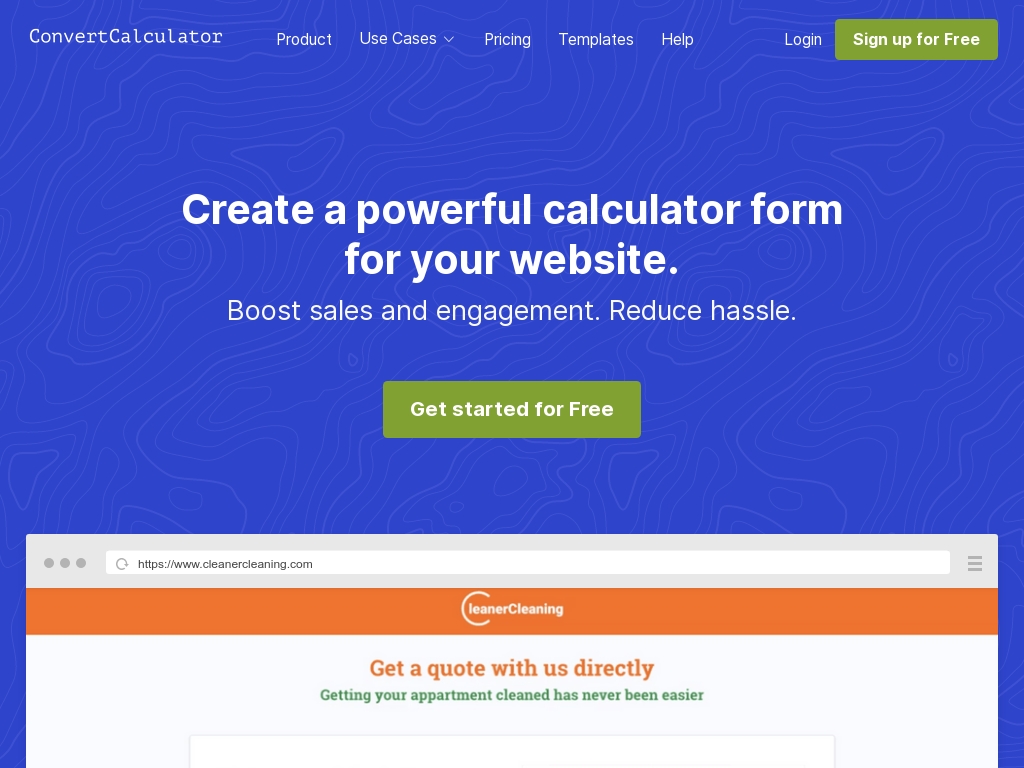

ConvertCalculator founder Joris de Ruiter went from building websites at an agency to running his own successful SaaS business that's now signing up new customers every day and taking $5,000 in monthly recurring revenue.




21. Data Fetcher ($276K/year)
In 2020, Andy learned about a Google Sheets add-on called API Connector, which imports your data into a simple Google sheet.
Around the same time, Andy noticed the rise in popularity of Airtable.
Since Google Sheets and Airtable were close in compatibility, Andy decided to build a similar type of data integration tool for Airtable.
Andy’s 3-step method for coming up with ideas is helpful context for understanding how he came up with the idea: - Find a platform that is already growing massively. - Look at already successful tools for more mature platforms. - Build an equivalent tool for the new platform.
How much money it makes: $276K/year
How much did it cost to start: $100
How many people on the team: 0
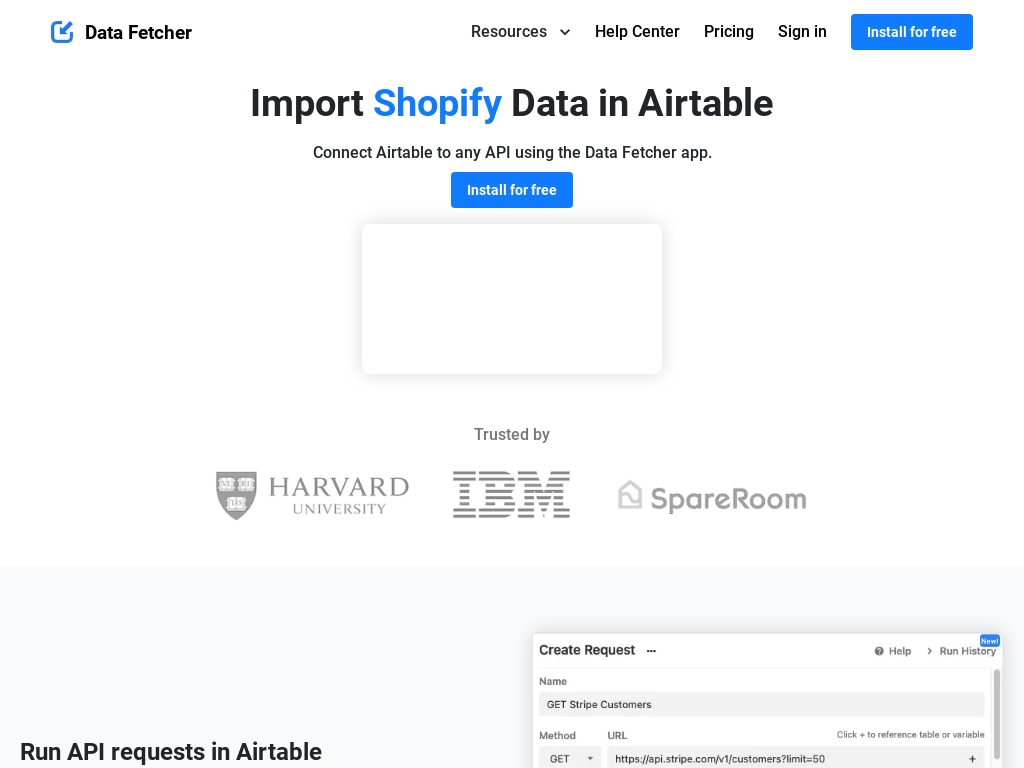

Data Fetcher is a no-code tool that imports data into Airtable which has reached 190 paying customers in just over a year after launch and is making $6500 in MRR, with a goal of reaching $30k+ in MRR, for aspiring founders looking to bootstrap an app to life-changing revenue as a solo founder.




22. Upvoty ($240K/year)
With a background in building online businesses, the founder needed a customer feedback solution for his own business.
The founder did not find any suitable tools for his SaaS platform, so he decided to build Upvoty on the side to “scratch his own itch.”
How much money it makes: $240K/year
How many people on the team: 0
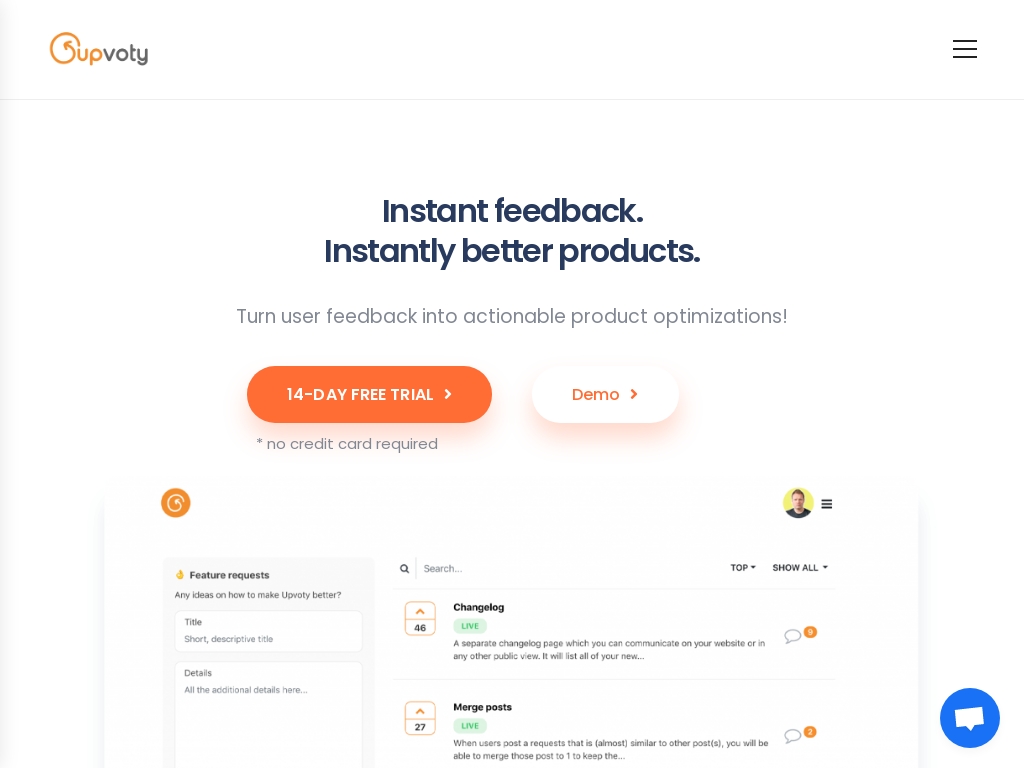

A case study on the founder of Vindy and Upvoty, who used his experience with his first startup to quickly grow his second startup to over 100 customers and $500 MRR, all while financing everything with the profits of his first company.




23. ReferralHero ($216K/year)
He was working for a startup in the event analytics space. A customer suggested a feature for attracting more attendees to events. The idea was to allow people to jump higher in the queue by inviting (or referring) more people to the event.
Several months later, remembered the idea and decided to build an MVP referral program as a widget instead of a web application.
How much money it makes: $216K/year
How many people on the team: 0
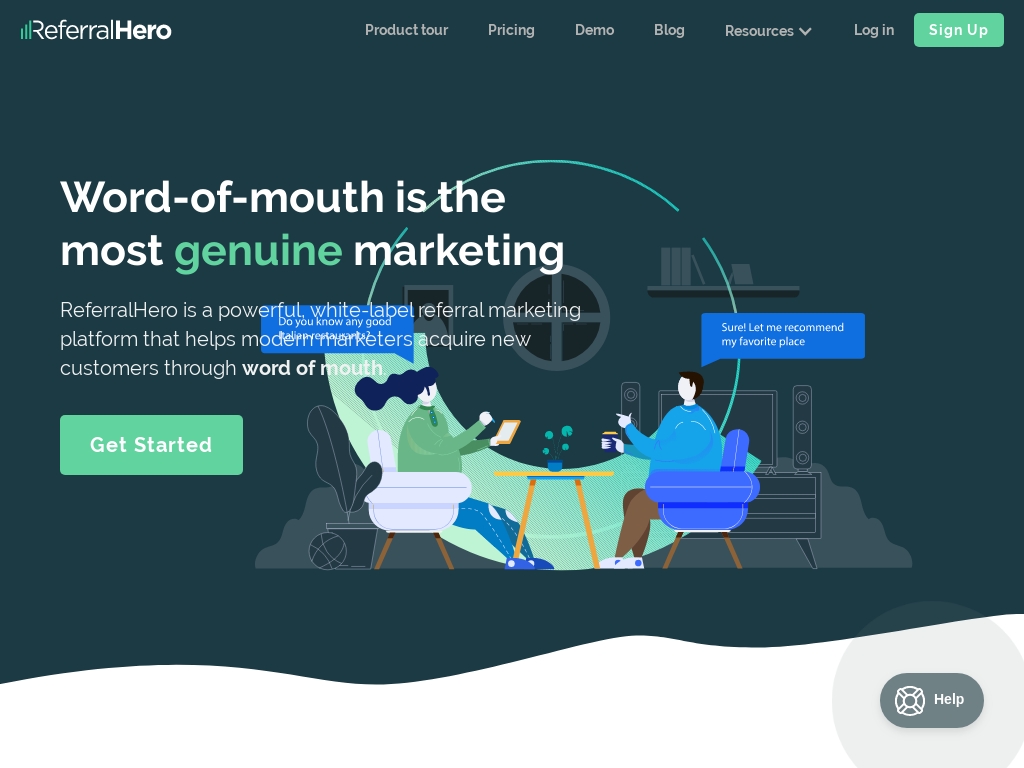

ReferralHero is a profitable, referral marketing platform with over 6,000 customers and MRR of around $18,000/month, built by founder Manuel Frigerio as an MVP in just four days, with growth coming from content marketing and SEO.




24. CraftMyPDF ($180K/year)
He took on some freelance work that required generating PDFs during the pandemic. While there were various online services available for this task, he found that none of them offered a user-friendly template editor. As a result, he decided to develop my PDF generation services with a template editor.
How much money it makes: $180K/year
How much did it cost to start: $800
How many people on the team: 1
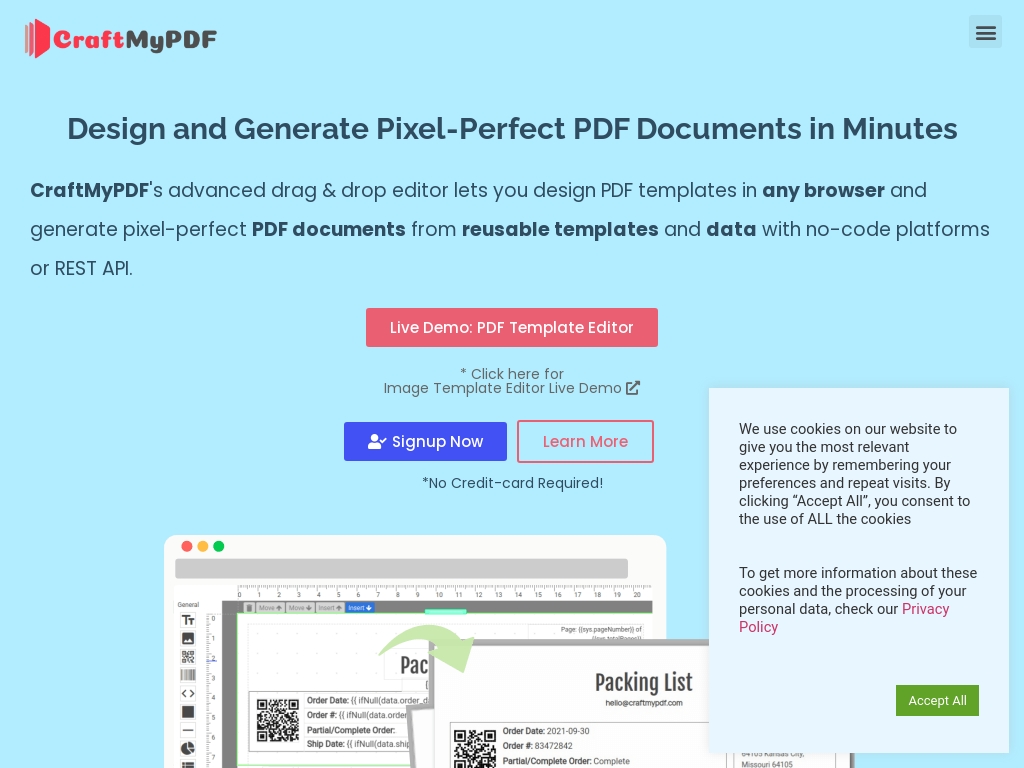

CraftMyPDF.com and APITemplate.io offer API-based products which allow businesses to generate PDF and image documents from reusable templates, and have generated over 2 million documents and $15,000 in monthly recurring revenue over the past 2 years.




25. tiiny.host ($180K/year)
Wanted to create a simpler and easier way to host web development projects. He wanted the project to be as easy to use as possible, with as few clicks as possible.
How much money it makes: $180K/year
How much did it cost to start: $100
How many people on the team: 0
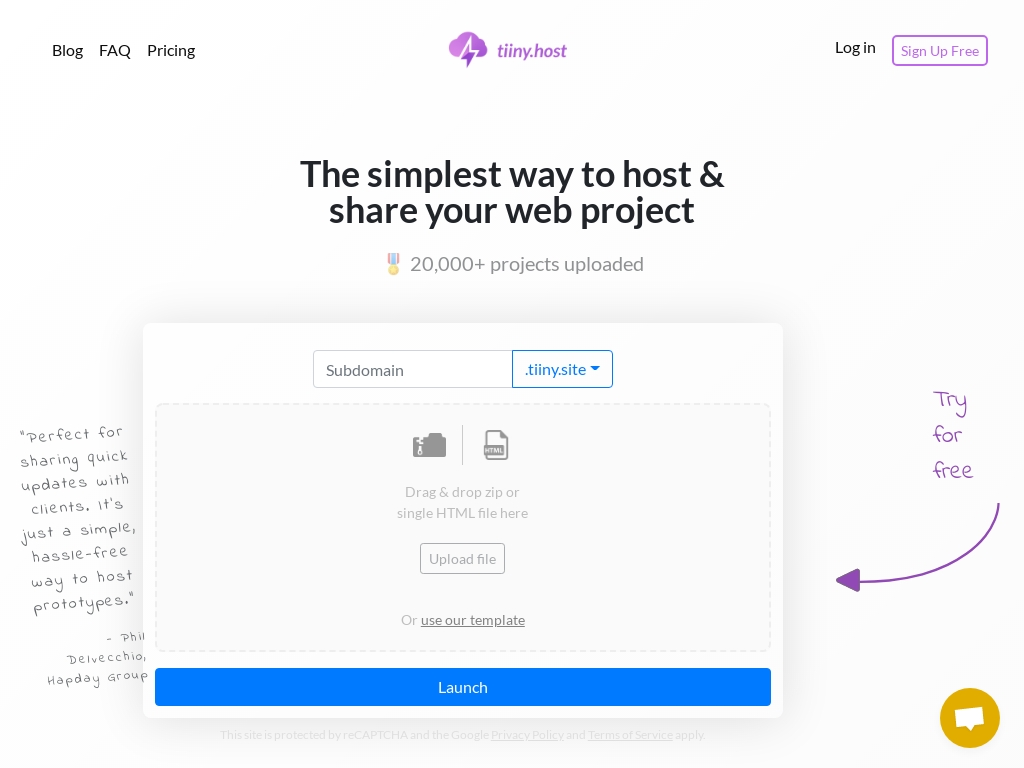

Tiiny.Host is a web hosting company that's doubled its monthly recurring revenue every three months, amassing 40,000+ users by providing an easy-to-use hosting and file sharing solution, and built up its brand through SEO.




26. SiteGPT ($180K/year)
In March of this year, Twitter got filled with a lot of AI content. So they founder started to wonder if there was any way he could make use of AI to help customers of his previous product. That’s when he thought – every one of his customers has a blog, so why not add a way for people to chat with those blogs? That’s how everything started.
His other product was doing relatively well at that time (around $4k MRR). But as he started working on this feature, he realized that the potential for this was so huge, that there wasn't any reason to limit it to his current customers. Anyone who has a website could make use of this. That’s when he decided to launch this feature as an entirely different product.
How much money it makes: $180K/year
How much did it cost to start: $500
How many people on the team: 0
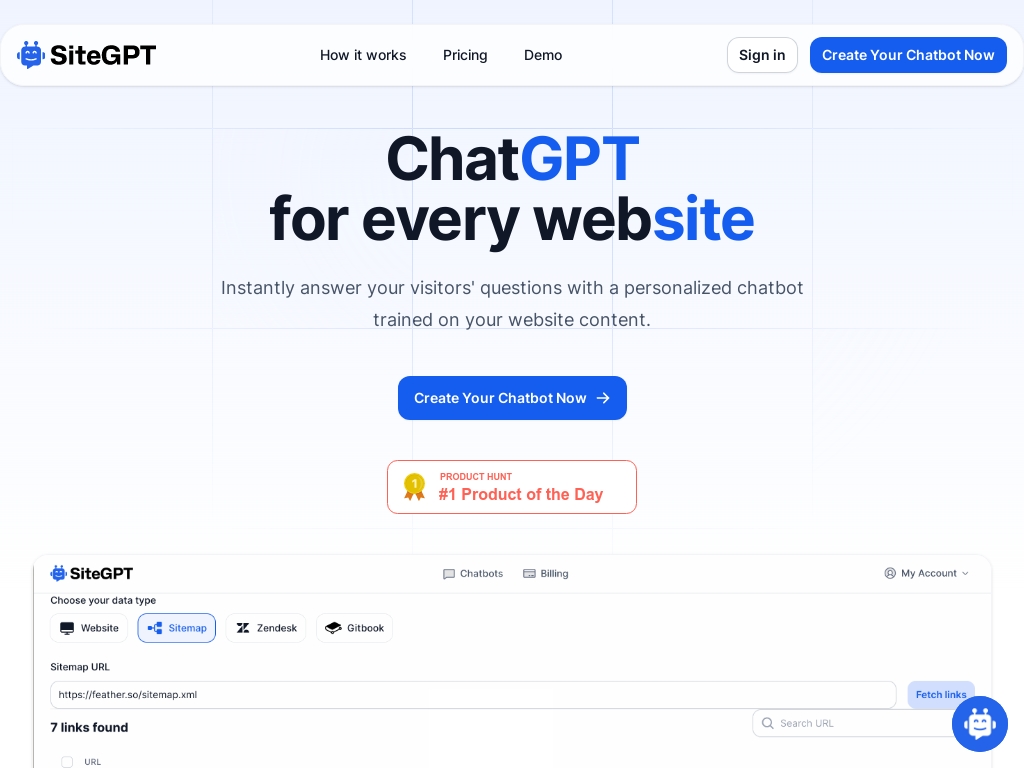

This case study article is about the founder of SiteGPT, an AI chatbot platform, who started the company as a side project and achieved $15k MRR in just 6 months, overcoming challenges such as building the first version of the product and finding product-market fit.




27. Analyzify ($144K/year)
DataPack, the founder's productized offer for data-analytics-related projects, had received too many requests from Shopify stores. So they decided to create a standalone product for the Shopify market.
How much money it makes: $144K/year
How much did it cost to start: $6K
How many people on the team: 3
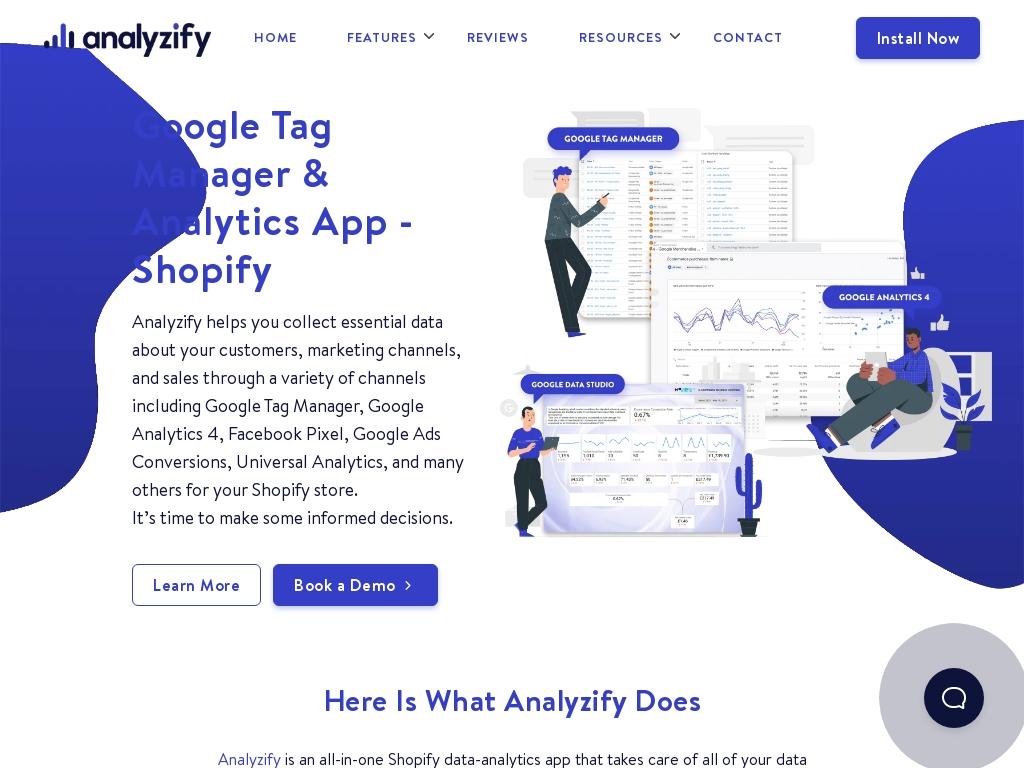

Analyzify.app is a Shopify app that helps enable accurate and reliable data tracking and generates $12K+/month with over 350 stores empowered, thanks to a freemium version on YouTube and exceptional customer support.




28. Client Portal ($132K/year)
The founder worked previously as a freelancer. She faced difficulties in finding a suitable platform to manage her clients' project assets. Despite trying different project management tools, the quality of these tools proved to be subpar, which led to her using email as the primary mode of communication.
Determined to find a better solution, she decided to create her own platform. She developed a page on her website that allowed clients to log in and access all the project assets that had been collected. She shared her experience with others about the portal and how it had helped her manage customer projects. After receiving a lot of encouragement from her peers, she eventually decided to sell it.
How much money it makes: $132K/year
How much did it cost to start: $5K
How many people on the team: 0
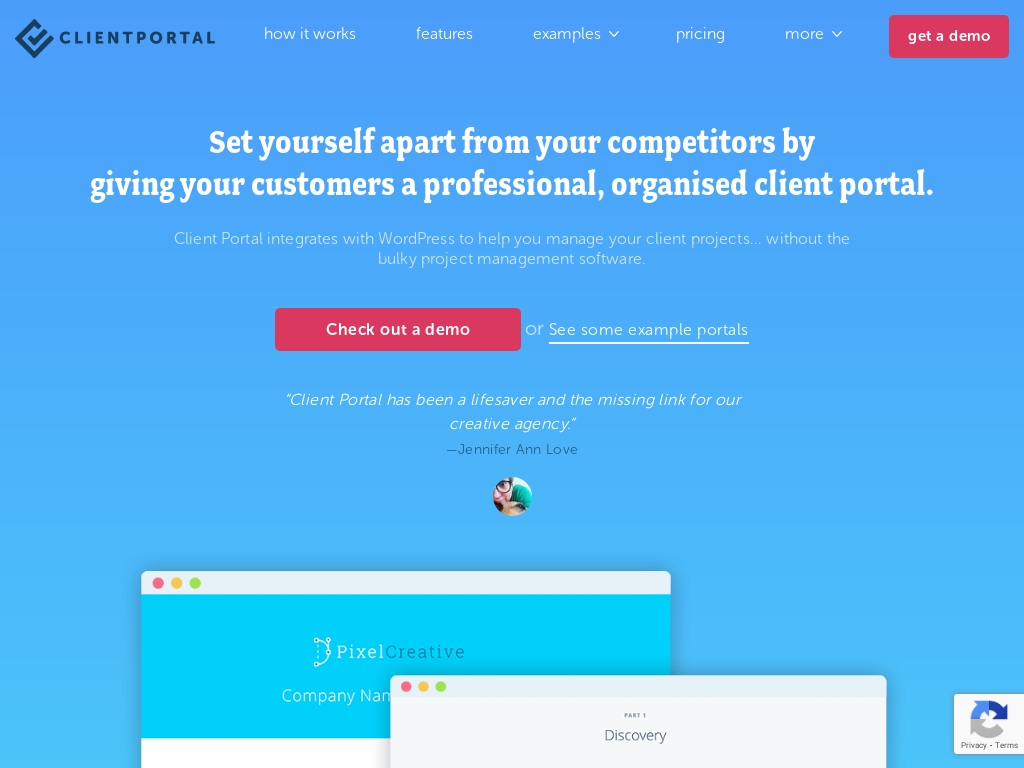

Laura Elizabeth built a $4-10k/month lightweight project management tool for WordPress called Client Portal, which provides clients with a branded, accessible space to access project deliverables and status updates, and has grown organically with the aid of podcasts, email courses, and Google searches.




29. Micro SaaS Founder - Rick Blyth ($120K/year)
Rick Blyth, the founder of Merch Wizard and KDP Wizard, came up with the idea for his business after realizing the frustrations and inefficiencies faced by niche Amazon sellers on platforms like Merch By Amazon and Kindle Direct Publishing. He used his software development skills to create chrome extensions that addressed these issues, gaining positive feedback from users and ultimately leading him to quit his corporate job and focus on growing his apps full-time. After achieving significant success with his apps, Rick decided to share his knowledge and experiences in a Micro SaaS Handbook and through his YouTube channel, aiming to inspire and help other software developers start their own profitable bootstrapped apps.
How much money it makes: $120K/year
How much did it cost to start: $0
How many people on the team: 0

Micro-SaaS founder Rick Blyth developed Merch Wizard and KDP Wizard Chrome extensions to help niche Amazon sellers, earning $10k MRR and successfully selling them before creating a handbook and YouTube channel to help others build their own profitable bootstrapped apps.




30. Leave Me Alone ($120K/year)
These founders also run a web development agency. Leave Me Alone was born because they took their own advice and stuck to solving their own problems. Both were spending a lot of time sorting through emails, so they went searching for a service that would help them find and unsubscribe from the unwanted ones.
Found a few that would help for free, but a closer look revealed that they didn’t charge because they were selling all of their user's data for marketing. Faced with the dilemma of a messy inbox or all of their email data being exploited, they decided to build their own solution.
How much money it makes: $120K/year
How much did it cost to start: $1K
How many people on the team: 0
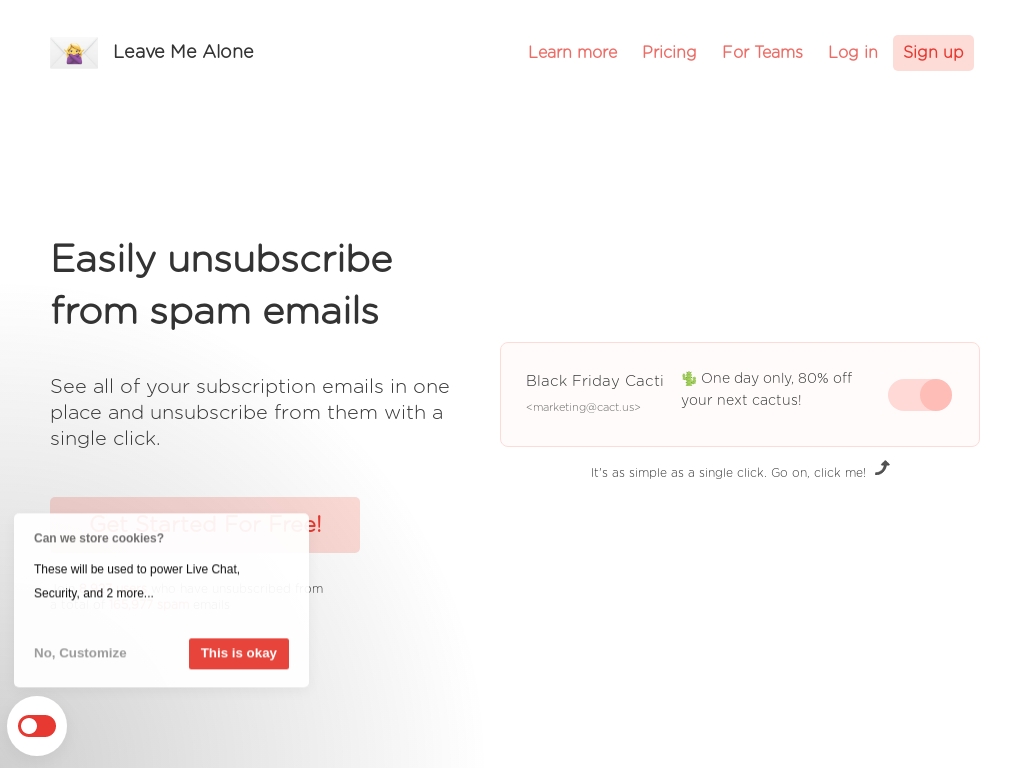

Leave Me Alone, a web service that helps users easily unsubscribe from unwanted emails, launched in January 2019 and made $1,186 in revenue in its first month, with a successful Product Hunt launch and a focus on being an open startup contributing to its success.




31. Live helper chat ($90K/year)
Everything started more than 10 years ago. When the founder was working in a small web agency and one of their clients asked for a live support script. Since they couldn't find any good open-source alternatives at that time - he decided to build one in two weeks during his holidays
How much money it makes: $90K/year
How much did it cost to start: $0
How many people on the team: 0

Lithuanian developer turned open-source guru builds and grows Live Helper Chat, attracting thousands of clients, and generates $90k/year, all in his spare time, without any marketing or investors.




32. AirTrackBot ($84K/year)
The idea came to the founder because he was tired of the tedious and time-consuming process task of manually checking airline websites daily, to see if fares dropped.
To solve this, he decided to create a chatbot that could automatically tracked flight prices and sent him notifications on Telegram when prices change. He was confident that many people like him could benefit from this. After a month of development, the first iteration of the product was released.
How much money it makes: $84K/year
How much did it cost to start: $0
How many people on the team: 0
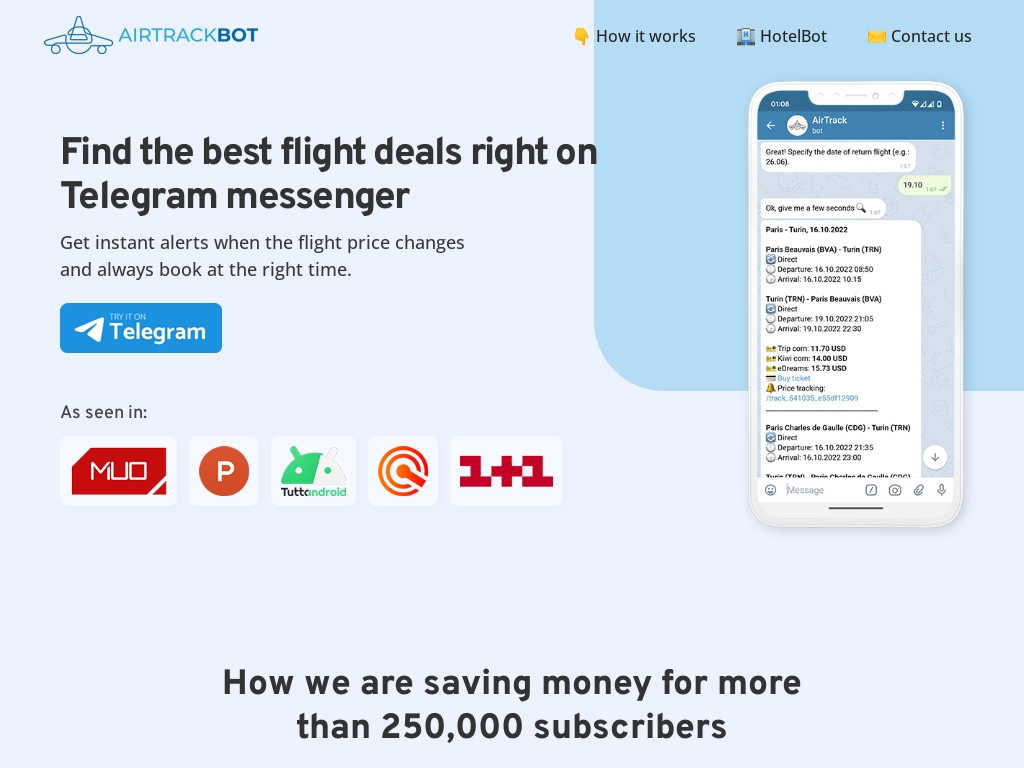

AirTrack, a Telegram chatbot that tracks flight prices, has over 900,000 subscribers, generates $7,000 per month and grew from 0 to 10,000 users in its first week by strategically using chatbot catalogs, press coverage and product launch platforms like Product Hunt, Reddit, Betalist, Indie Hackers, and Hacker News.




33. Repurpose Pie ($72K/year)
Ash, a Chartered Accountant turned content entrepreneur, launched Repurpose Pie after his co-founder paid $500/month to a video editor for converting tweets to videos. Spotting a lucrative pain point, the team built software to automate this process, achieving $75,000 annual recurring revenue within a week.
How much money it makes: $72K/year
How many people on the team: 2
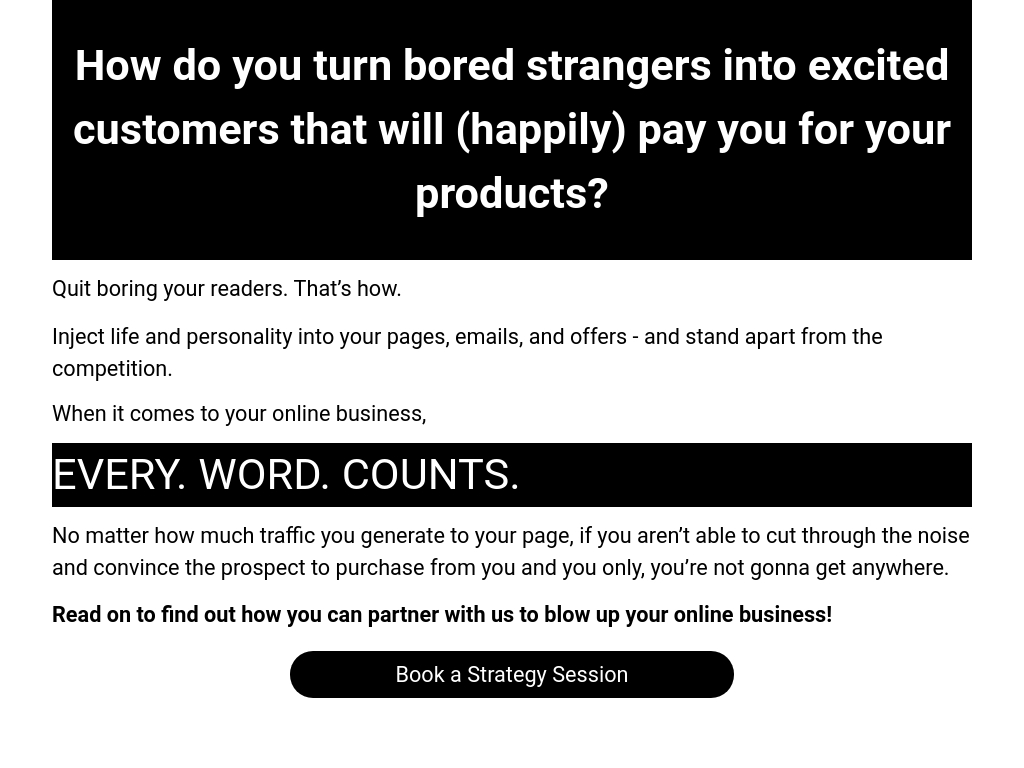

Repurpose Pie is a text-to-video content repurposing software for Twitter creators that automatically converts text posts into videos and posts them to TikTok, YouTube, and soon Instagram, helping creators reach new audiences and increase engagement without putting in extra effort.




34. aiCarousels ($120K/year)
On the brink of losing his job, Fernando Pessagno, an Argentinian product designer, embarked on a 10-day #buildinpublic challenge to create aiCarousels.com, a tool that now generates $5,000 MRR, helping non-designers craft social media carousels using AI.
How much money it makes: $120K/year
How much did it cost to start: $0
How many people on the team: 0
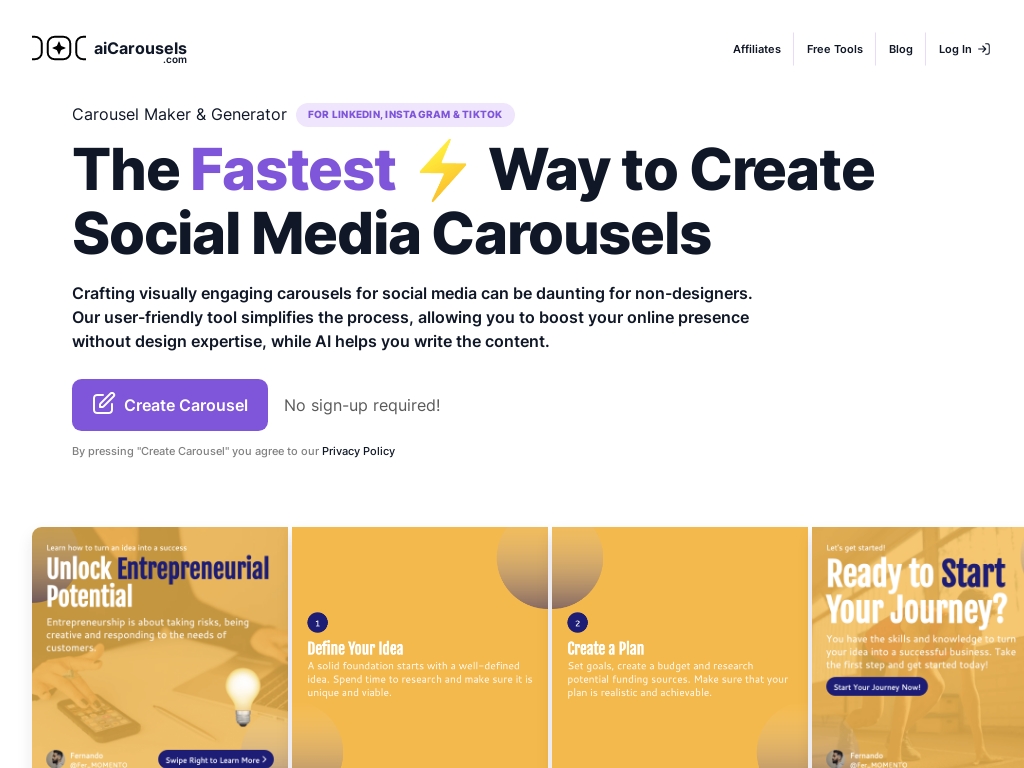

Discover how an Argentinian product designer turned an accidental 10-day project into aiCarousels.com, an AI-powered social media carousel generator now boasting $5,000 in monthly recurring revenue (MRR), with minimal design skills and no formal programming education.




35. SaasRock ($52K/year)
Alexandro came up with the initial idea for SaasRock after 8 years of being a developer.
He built multiple web apps using C#, Vue, .Net, and Tailwind CSS.
Alexandro felt like his web development process was too slow because of the multiple stacks he was using. He migrated my Vue2 app to Vue3, then to React, and then to Svelte to create a similar boilerplate but with different frontends.
With this in mind, he started looking for tools to speed up his web development process.
How much money it makes: $52K/year
How much did it cost to start: $500
How many people on the team: 0
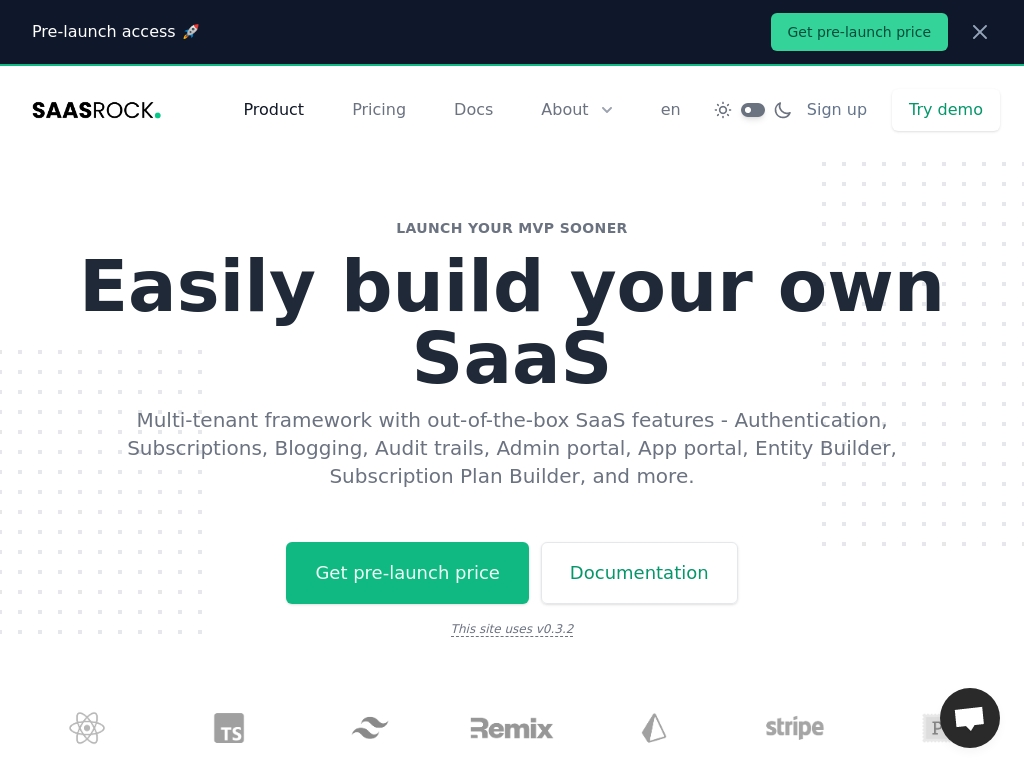

Aspiring founders will learn how Alexandro Martínez built SaasRock, a powerful Remix boilerplate generating $4,380 MRR with impressive features and integrations, offering insights gleaned from launching, scaling, and effectively engaging with a community of developers.




36. Nureply ($48K/year)
Wanted to find alternative solutions to finding customers. And did not want to only use paid advertising or cold outreach on LinkedIn.
Learned about email marketing and started exploring how to use it to attract customers.
After realizing he was writing the same outreach nearly every day, he wondered if he could build an AI-based tool for emails.
With a background in Machine Learning (ML), and AI topics, and a working knowledge of GPT-3/OpenAI, he started developing an AI-based email marketing tool.
How much money it makes: $48K/year
How much did it cost to start: $200
How many people on the team: 0
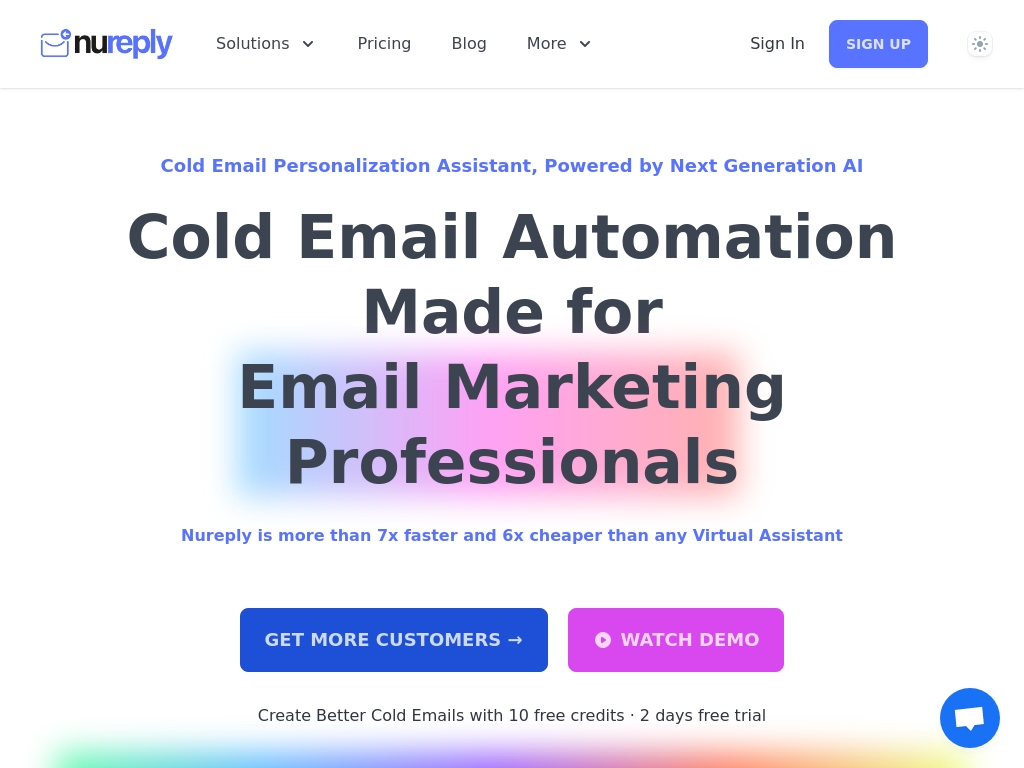

Onur Geneş founded Nureply to help SaaS and agency owners boost their revenue through email marketing, growing to $4,000 in revenue per month in just four months, without any paid advertising campaigns yet.




37. T.LY ($31.2K/year)
Tim Leland, creator of the URL shortener and link management tool T.LY, After reading that Google would be shutting down its URL shortener service in March 2019, the founder saw an opportunity to develop a link shortener service that could fill the gap.
He also recognized that there was a demand for a link shortener API for use in his day job, specifically with a texting application. Realizing that other companies would also benefit from this service, he decided to build his own shortener API.
How much money it makes: $31.2K/year
How much did it cost to start: $50
How many people on the team: 0

T.LY is a simple URL shortener and link management tool that has over 8 million short URLs and has tracked over 80 million clicks, with a browser extension (https://t.ly/extension) having over 350,000 active users and making over $2,600 a month.




38. Findymail ($30K/year)
Built an email finder tool for Twitter called Scrappybird. He realized it was too niche and expanded to the lead generation space – Findymail.
How much money it makes: $30K/year
How much did it cost to start: $100
How many people on the team: 0
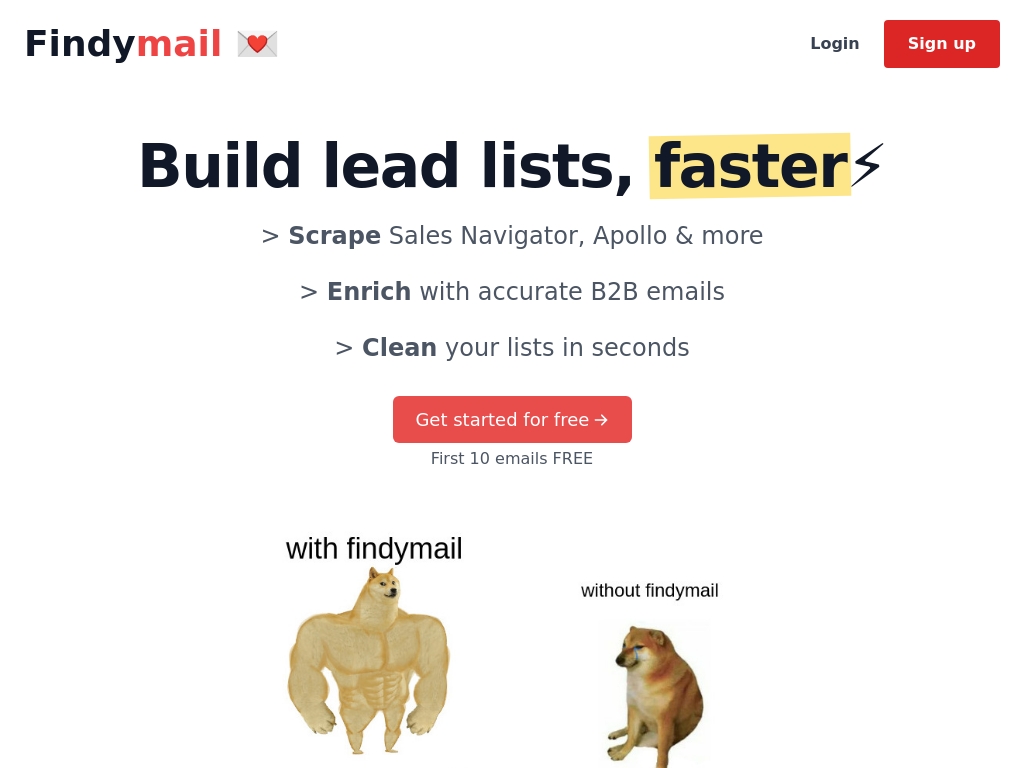

Findymail founder Valentin Wallyn shares how he went from being a teenage gamer creating digital currency to building successful SaaS businesses, with his latest venture reaching $2,500 in monthly recurring revenue just months after launching.




39. ScreenshotOne ($26.4K/year)
Tried to build his first product, a simple Twitter analytics tool. A few people used it. But he wasn't passionate about it.
So this founder decided to get back to his roots. He was a server-side developer and had a tremendous experience in building APIs. Sat and wrote down all the problems he could think of, and came up with new ones. Everything looked boring, but he didn't want to be stuck for years in search of ideas. So, decided to pick up one randomly—screenshot API. He decided that it could be validated on the go and see if there was demand.
How much money it makes: $26.4K/year
How much did it cost to start: $2K
How many people on the team: 1

This case study follows the journey of Dmytro Krasun, the founder of ScreenshotOne, who built a successful business providing a simple API to turn any website URL into a screenshot, growing it to $2.2K MRR in a short period of time by targeting customers in various industries including website galleries, copyright infringement software, cold email software, and marketing software.




40. Blurweb App ($18K/year)
The founder of the Blurweb App started teaching code on YouTube but realized he was revealing a lot of sensitive information like emails and API keys. Whenever he had to make a screen share video he spent hours trying to add blur and buying video editing tools. He thought that there had to be a better solution than this. Although he did not talk to many people to validate the idea, he believed that if he needed it, other content creators might need it too.
How much money it makes: $18K/year
How much did it cost to start: $5
How many people on the team: 0
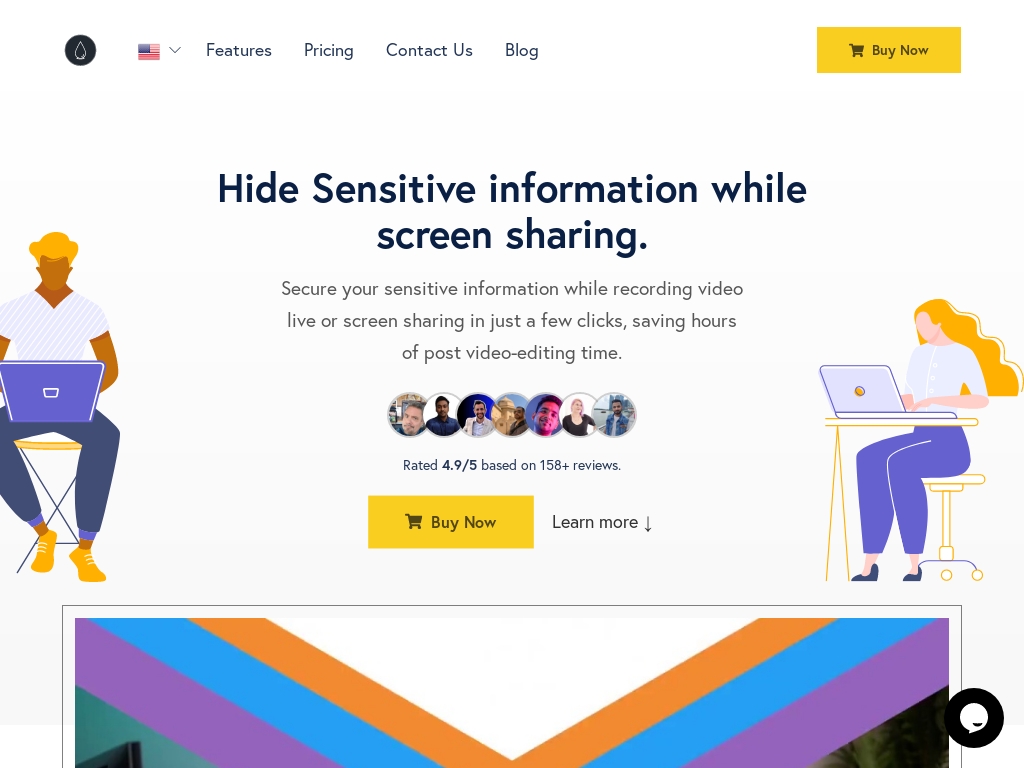

21-year-old software developer from India creates profitable browser extension, blurweb.app, saving content creators hours of post-video-editing time, with 2000+ customers and $1000+ in monthly revenue and plans to launch on Safari and other extension marketplaces.




41. Messenger for Desktop ($18K/year)
Messenger for Desktop came to life when Facebook introduced its new web app messenger.com.
The founder of Messenger for Desktop envisioned a standalone app that would enable users to access Messenger without having to open a browser.
He went ahead and developed a prototype, which he later made open source and uploaded on GitHub.
The app gained immense popularity, with hundreds of stars, indicating its usefulness not only to the founder but to many other users as well.
How much money it makes: $18K/year
How much did it cost to start: $0
How many people on the team: 0
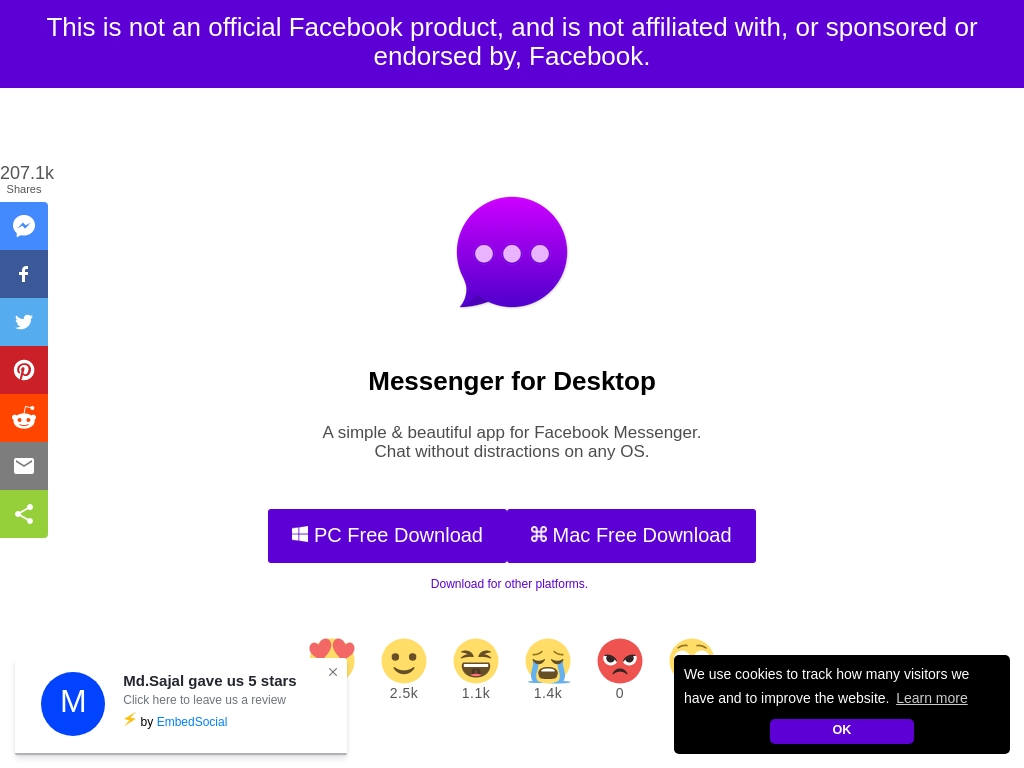

Messenger for Desktop, a Facebook Messenger app for Mac and Windows computers, has over 10 million downloads and 100,000+ monthly active users, generating $1.5k in monthly revenue, since its creation in 2015 as a side-project by founder Alexandru.




42. Baxter Inc. ($12K/year)
The founder was having a tough time managing his Gmail inbox when he came up with the idea of a dashboard. He then interviewed dozens of regular American adults to see if the idea was appealing. Soon, he found out that the majority of people preferred a simple tool rather than a dashboard. This motivated him to build Baxter.
How much money it makes: $12K/year
How much did it cost to start: $50K
How many people on the team: 1
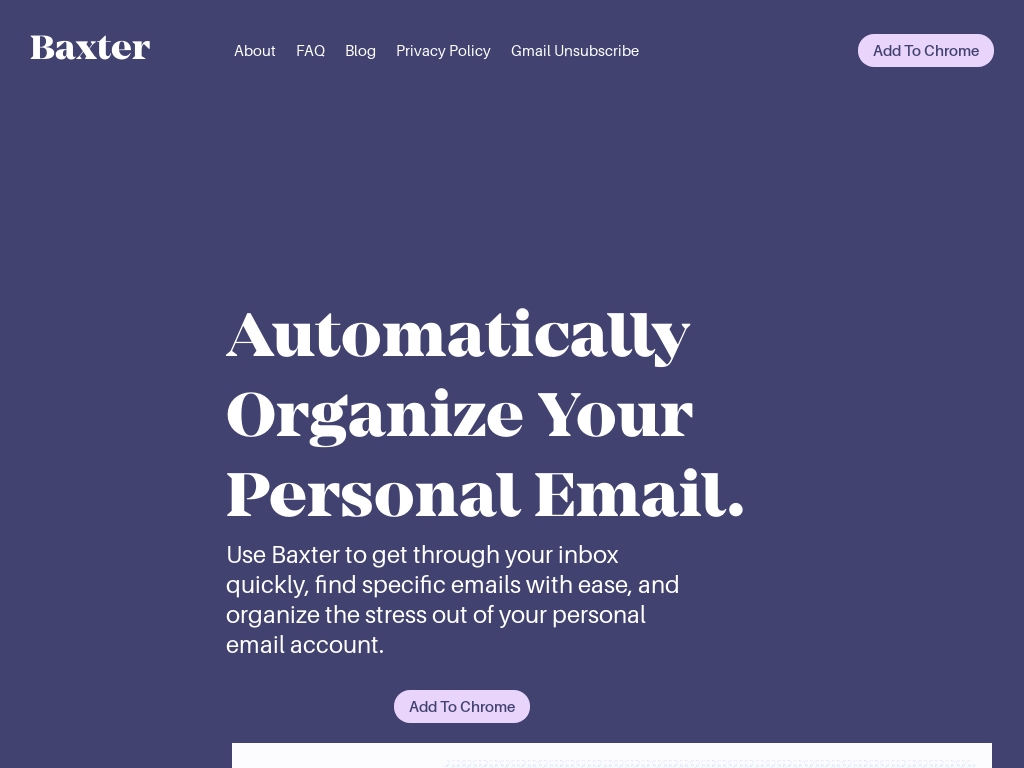

A case study on the founder of Baxter, a browser extension that helps Gmail users organize their inboxes by unsubscribing from newsletters, deleting unneeded emails, and automatically labeling and organizing emails, which generated over $1,000 in monthly recurring revenue in just nine months and successfully acquired an existing Gmail Unsubscribe extension to drive organic user growth.




43. Treendly ($12K/year)
While working on another SaaS product, he wondered about what non-essential feature he could take out from an existing product and put into another market where the feature is essential.
He was already running one of my other software products, where he collected e-commerce data. One of the features of that product was trend-spotting for e-commerce merchants.
And so Treendly was born from a side feature of that other product.
How much money it makes: $12K/year
How much did it cost to start: $0
How many people on the team: 0
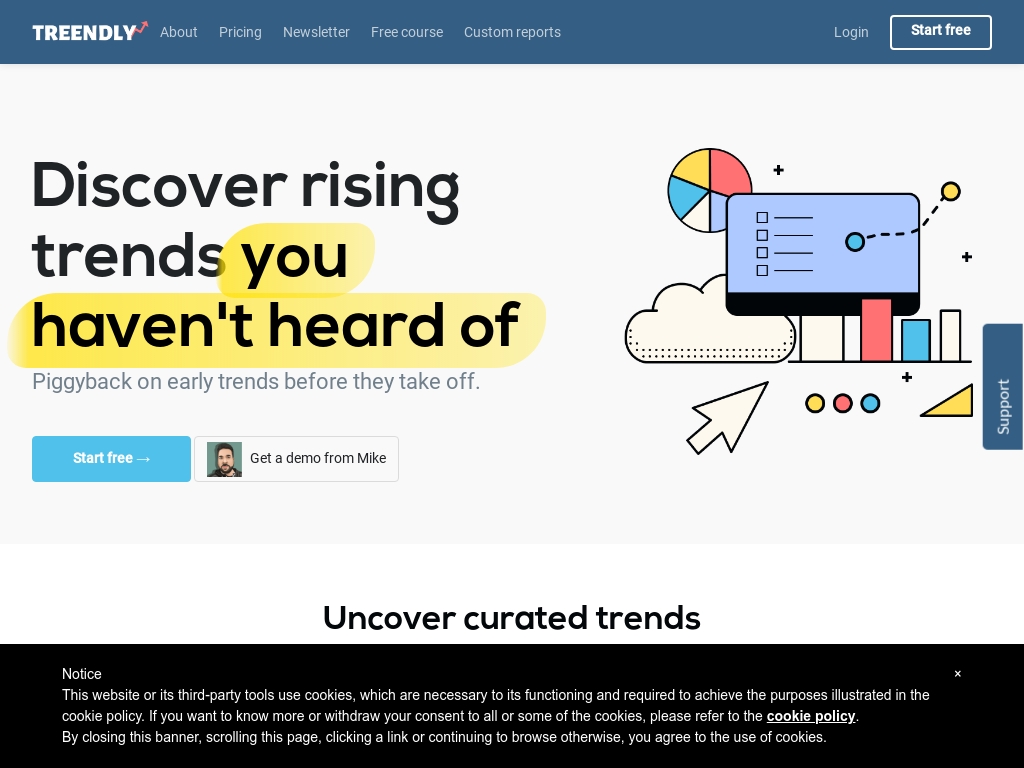

This case study is about a jazz musician turned SaaS founder who bootstraps and simultaneously runs nine products with $8k/month revenue, of which Treendly, a platform that discovers emerging trends, accounts for $1k/month and uses self-taught data collection skills to focus on what is important.




44. DocPress.it ($9.6K/year)
The founder collaborated with various guest writers for the blogs but faced difficulties in publishing their articles from Google Docs to WordPress.
He had to manually save images separately, and copy-pasting the content didn’t work correctly, depending on the article, it took 30 minutes to format it with the necessary headings, images, and other elements.
To automate these tedious processes, he started working on Google Docs add-ons.
How much money it makes: $9.6K/year
How much did it cost to start: $9K
How many people on the team: 1
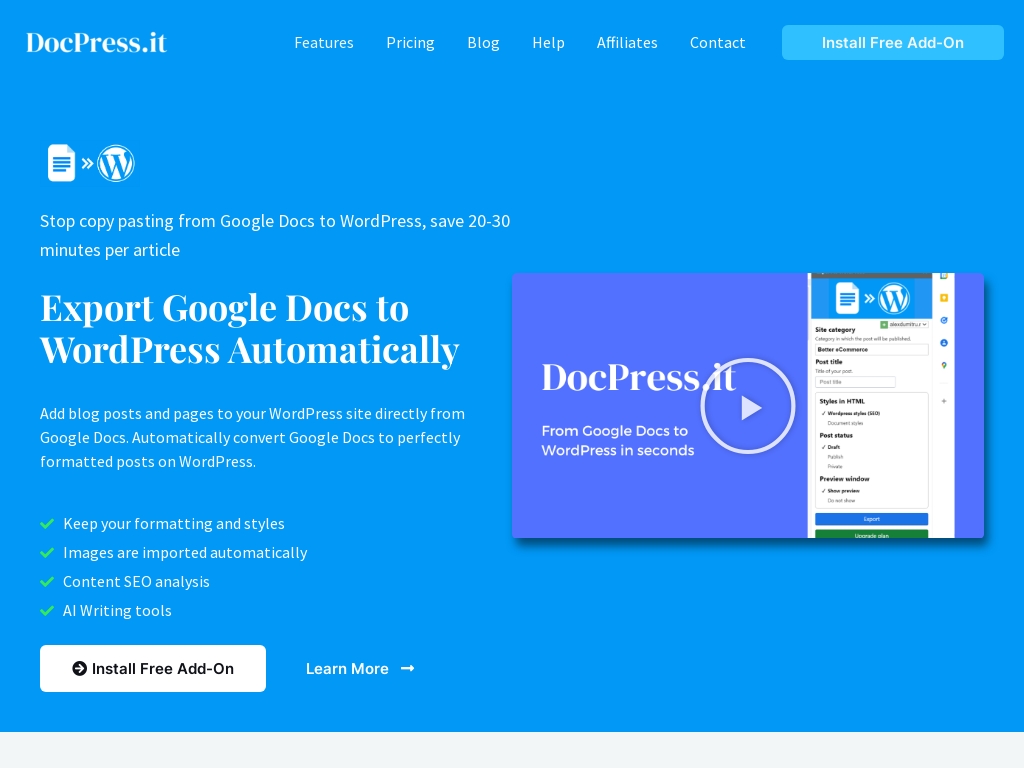

DocPress.it founder, Alex, built an add-on for Google Docs that helps users automate the tasks of SEO content analysis, generating article intros with AI, image renaming, and others when publishing content; the platform now has over 1100 users and makes around $500 MRR.




45. Wheely Sales ($7.2K/year)
After conducting some thorough research, the founder noticed that the lucky wheel popup format had started appearing and was proving to be highly effective in converting traffic.
Spin-a-sale and Wheelio, two popular apps available on the Shopify app store, had received hundreds of excellent reviews.
However, the founder realized that these apps were only compatible with Shopify, leaving other major platforms like WooCommerce, BigCommerce, and Squarespace unprovided.
This was enough validation to inspire them to build Wheely Sales - a solution that is compatible with any website or platform and fills this gap in the market.
How much money it makes: $7.2K/year
How many people on the team: 0
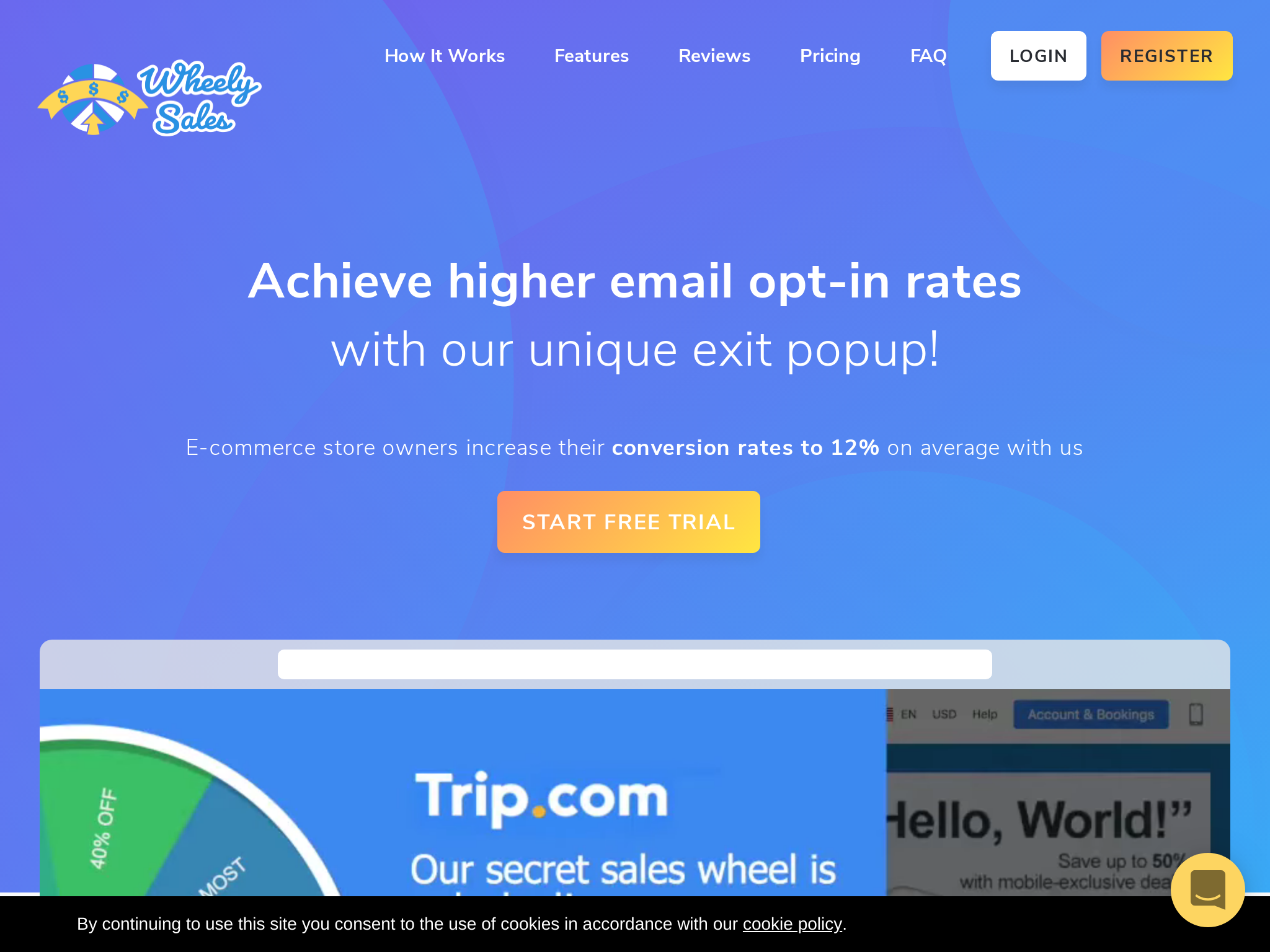

Wheely Sales CEO Josh created a lucky wheel popup that has grown revenue from $0 to $600/month in just 4 months since getting started and has attracted over 1.1 million users to his customers’ websites, all while proving that when it comes to creating a product, competition is validation.




46. SuperJack ($1.4K/year)
The founder discovered that many merchants using Squarespace forums and Facebook groups were requesting to receive orders directly to a Google Sheet without the need for manual exporting every day or week. After conducting some research, he came across a no-code tool that allows users to connect and automate repetitive tasks using different APIs. He recommended the tool and realized the high demand for it, which led him to create his own tool.
How much money it makes: $1.4K/year
How much did it cost to start: $2K
How many people on the team: 1
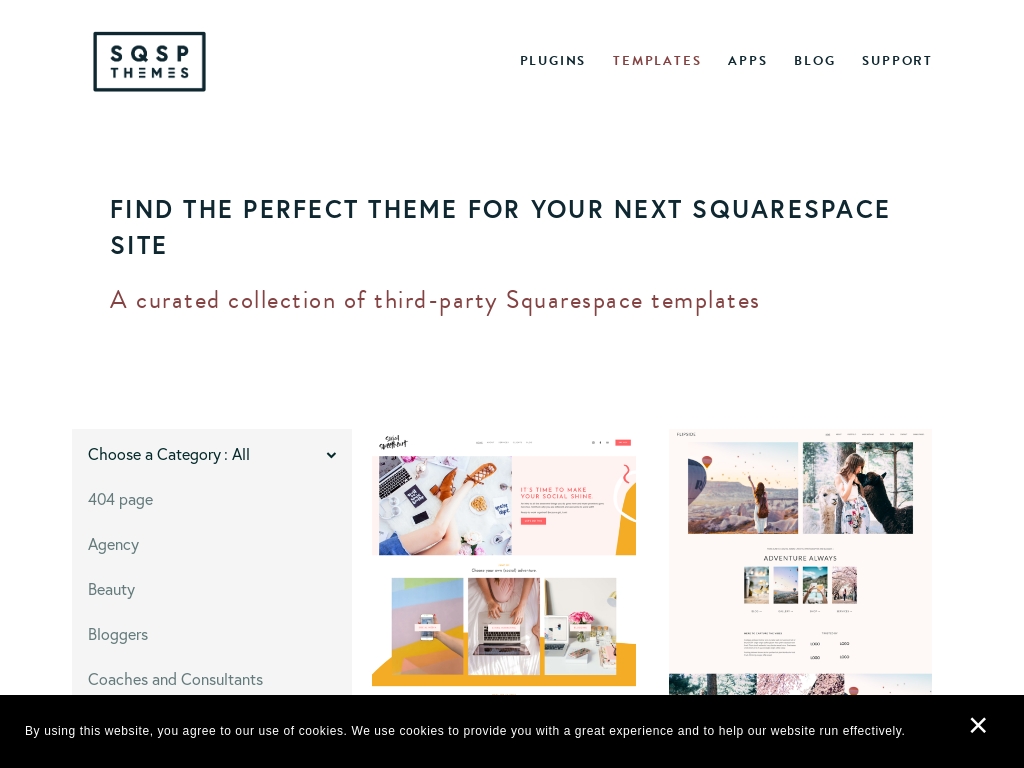

SuperJack, a Squarespace extension for eCommerce owners, was launched 30 days ago, and is currently at $117 MRR with 14 users, and the founder shares his process of building the business from identifying the problem to developing and launching the product.





Download the report and join our email newsletter packed with business ideas and money-making opportunities, backed by real-life case studies.

Download the report and join our email newsletter packed with business ideas and money-making opportunities, backed by real-life case studies.

Download the report and join our email newsletter packed with business ideas and money-making opportunities, backed by real-life case studies.

Download the report and join our email newsletter packed with business ideas and money-making opportunities, backed by real-life case studies.

Download the report and join our email newsletter packed with business ideas and money-making opportunities, backed by real-life case studies.

Download the report and join our email newsletter packed with business ideas and money-making opportunities, backed by real-life case studies.

Download the report and join our email newsletter packed with business ideas and money-making opportunities, backed by real-life case studies.

Download the report and join our email newsletter packed with business ideas and money-making opportunities, backed by real-life case studies.












